Table of Contents
River Raine, 24, underwent gender-affirming top surgery. Raine uses he/they pronouns and has looked forward to this surgery for years.
Alt Text: Raine poses for a portrait outside his apartment with green trees in the background while wearing a blue pronoun pin that says he/they. (Taylor Ballek | Corewell Health Beat)
Raine worked with LGBTQIA+ patient navigator Zoey O’Brien at Corewell Health to get connected with the services he needed. From there he met Dr. Erica Wrubel who would perform Raine’s surgery.
Alt Text: Raine sits in a hospital bed prior to surgery wearing a purple gown while talking to Dr. Wrubel who is wearing blue scrubs. (Taylor Ballek | Corewell Health Beat)
Dr. Jeffrey Chen performs a nerve block procedure on Raine prior to surgery to help with pain once surgery is over.
Alt Text: Dr. Chen watches an ultrasound monitor while using a needle to administer the nerve block into Raine’s side. Raine lies on their side on the hospital bed and a nurse helps Dr. Chen. (Taylor Ballek | Corewell Health Beat)
Raine waits to get taken back to the operating room.
Alt Text: Raine wears a blue surgical cap and purple gown with his stuffed animal fox in hand while lying on the hospital bed. Hospital staff work in the background. (Taylor Ballek | Corewell Health Beat)
Top surgery is a procedure that removes or augments breast tissue and reshapes the chest to create a more masculine or feminine appearance for transgender and nonbinary people.
Alt Text: Dr. Wrubel gets help with a surgical gown and puts on green latex surgical gloves in the operating room. (Taylor Ballek | Corewell Health Beat)
Dr. Wrubel begins to make an incision on the left side of Raine’s chest.
Alt Text: Dr. Wrubel and surgical staff stand over Raine’s chest to make an incision in a dimly lit operating room with a bright light shining where they work. (Taylor Ballek | Corewell Health Beat)
Dr. Wrubel takes a marker to make a line of where the incisions will be on Raine’s chest. She takes her time to make sure the lines are very straight and precise.
Alt Text: Dr. Wrubel stands over Raine’s chest holding a blue marker to make lines where the incisions will be. (Taylor Ballek | Corewell Health Beat)
Dr. Wrubel examines her work on Raine’s chest.
Alt Text: Dr. Wrubel looks at her incisions that are stapled on Raine’s chest in the operating room. The photo is mainly dark with just the chest illuminated and Dr. Wrubel’s hand. (Taylor Ballek | Corewell Health Beat)
Dr. Wrubel has the table moved up so she can see Raine’s chest as if they were sitting up. She does this to make sure the incisions are sitting just right.
Alt Text: The operating table is moved to a 45 degree angle with Raine in a sitting position. Dr. Wrubel and OR staff are standing together looking at the incisions to make sure they are just right. (Taylor Ballek | Corewell Health Beat)
Dr. Wrubel begins to sew the incisions shut with stitches.
Alt Text: A close up of Dr. Wrubel’s hands show her sewing the incision shut. (Taylor Ballek | Corewell Health Beat)
Dr. Wrubel stands back and takes one final look at Raine’s chest.
Alt Text: Dr. Wrubel stands back and looks at Raine’s flat chest propped up on the operating table. (Taylor Ballek | Corewell Health Beat)
Dr. Wrubel corrected a few people in the operating room during surgery on Raine’s pronouns for those who incorrectly used their pronouns.
Alt Text: Dr. Wrubel leans in close to look at the incisions on Raine’s chest. (Taylor Ballek | Corewell Health Beat)
“Dr. Wrubel was very hands on which I needed,” Raine said. “Her office was very nice … they were friendly in general and made me feel comfortable along the way.”
Alt Text: Raine smiles as he sits in a chair in his hospital room the day after surgery wearing a blue tank top with a blue pin that says “River, they/them). (Taylor Ballek | Corewell Health Beat)
After surgery, Raine decided he wanted to try he/they pronouns. Their nurse wrote “He/They” on the board so staff would know their correct pronouns.
Alt Text: In black marker, the board reads, “He/They”. (Taylor Ballek | Corewell Health Beat)
When asked about his body, he had a simple way of explaining it. “Imagine being born in the wrong body,” he said.
Alt Text: Raine sits in a doctor’s office smiling while wearing a navy tank top and a blue pin that says “River he/they” and two rainbow pins that say “love is love” and “show your personality”. (Taylor Ballek | Corewell Health Beat)
When asked what motivates them, he will tell you pure spite. “Don’t get me wrong, I have my moments of feeling sad,” he said. “But I also try not to worry about stuff.”
Alt Text: Raine is shown in the reflection of a mirror while sitting in a doctor’s office. (Taylor Ballek | Corewell Health Beat)
Raine had one eye removed and is considered legally blind. He can see lights, outlines and movement, but it is starting to fade out of their remaining eye which will eventually be removed too. “I don’t like thinking of myself as visually impaired,” he said.
Alt Text: A close up of Raine’s lap with his keyboard device with braille which allows him to text and do several things on his phone. To the left of his lap is his white cane folded up that helps him get around. (Taylor Ballek | Corewell Health Beat)
“Oh my gosh, you look amazing,” said Kimberly Texley-Quigg, NP, certified obstetrics and gynecology nurse practitioner at Corewell Health’s Spectrum Health Cancer Center at Lemmon-Holton Cancer Pavilion.
Alt Text: Dr. Quigg puts their hand on Raine’s chest to see how it is healing. Raine sits on the edge of an exam table with his shirt off. (Taylor Ballek | Corewell Health Beat)
“I heal very well,” Raine said.
Alt Text: A close up of Raine’s incisions are shown during a doctor’s appointment where he is sitting on an exam table. (Taylor Ballek | Corewell Health Beat)
Raine nervously giggles as he is about to get his drains taken out. “It shouldn’t hurt when the drains come out,” Quigg explained. “The hole will close within two hours, and you’ll be all set.”
Alt Text: Raine nervously giggles while sitting on an exam table as they are about to get their drain pulled out by Dr. Quigg. (Taylor Ballek | Corewell Health Beat)
Dr. Quigg explained that they will receive a scar massage in a few weeks and demonstrated some exercises to increase range of motion to the upper body and arms.
Alt Text: Raine sits on the exam table and peacefully smiles to himself. (Taylor Ballek | Corewell Health Beat)
“You’ll sit close to the wall and almost climb it while sitting,” she said. “And there is also the scapula squeeze where you try to squeeze by pushing your shoulders back once or twice a day.”
Alt Text: Dr. Quigg shows Raine the exercises he will do to increase range of motion by grabbing his right arm and holding it out while also taking his left arm and holding it out. (Taylor Ballek | Corewell Health Beat)
Three months of testosterone was also prescribed that will help deepen Raine’s voice, shape his face and support facial hair growth.
Alt Text: Dr. Quigg smiles as she peacefully looks at Raine who is also smiling in the exam room. (Taylor Ballek | Corewell Health Beat)
When he is not shuttling back and forth to doctors’ appointments, he spends a lot of time at home with his cat Artemis.
Alt Text: Raine hugs and nuzzles Artemis, his cat, at his apartment. (Taylor Ballek | Corewell Health Beat)
Raine prides himself on being independent. “Try to help me and I will walk away from you,” Raine said. “I refuse help unless I can’t do it myself.”
Alt Text: Raine sits on the couch in his apartment and pets his cat. The cat is white, black and caramel colored with a pink nose. (Taylor Ballek | Corewell Health Beat)
Raine also enjoys singing and is excited to get into it again once his voice deepens after taking testosterone.
Alt Text: Raine kisses Artemis on the head. (Taylor Ballek | Corewell Health Beat)
“Oh my gosh, you look amazing,” said Kimberly Texley-Quigg, NP, certified obstetrics and gynecology nurse practitioner at Corewell Health’s Spectrum Health Cancer Center at Lemmon-Holton Cancer Pavilion.
She was meeting with a patient who had just undergone gender-affirming top surgery.
Top surgery is a procedure that removes or augments breast tissue and reshapes the chest to create a more masculine or feminine appearance for transgender and nonbinary people.
“I heal very well,” said 24-year-old River Raine, who received a double mastectomy a few weeks prior.
Raine uses he/they pronouns and has looked forward to this surgery for years.
“Your incisions are healing beautifully,” Quigg said as she removed the bandages.
“I still need to get comfortable correcting people on pronouns,” Raine said.
A large blue button is pinned to their chest with pronouns displayed for all to see.
“He/They” it reads.
“It shouldn’t hurt when the drains come out,” Quigg explained. “The hole will close within two hours, and you’ll be all set.”
She explained that he will receive a scar massage in a few weeks and demonstrated some exercises to increase range of motion to the upper body and arms.
“You’ll sit close to the wall and almost climb it while sitting,” she said. “And there is also the scapula squeeze where you try to squeeze by pushing your shoulders back once or twice a day.”
Three months of testosterone was also prescribed that will help deepen Raine’s voice, shape his face and support facial hair growth.
Rising to challenges
Rewind just one week and Raine was healing at Corewell Health’s Butterworth Hospital in bed after surgery.
One of his favorite stuffed animals sat on their lap.
“This one’s name is Einstein,” he said, introducing another.
Raine is visually impaired, and walks with a white cane, but gets around very well and tries hard to be independent.
And when asked about his body, he had a simple way of explaining it.
“Imagine being born in the wrong body,” he said.
Honoring emotions
When asked what motivates them, he will tell you pure spite.
“Don’t get me wrong, I have my moments of feeling sad,” he said. “But I also try not to worry about stuff.”
For, example, his vision.
“I was tired of the pain from the same eye procedure over and over, so I decided to have it removed,” he said.
They can see lights, outlines and movement, but it is starting to fade out of their remaining eye which will eventually be removed too.
“I don’t like thinking of myself as visually impaired,” he said.
Heading home to heal
A nurse stopped in to check the drains on Raine’s incisions as he finished up breakfast.
“I should be discharging in just a few hours,” he said. “And these sausages are really good.”
Raine worked with LGBTQIA+ patient navigator Zoey O’Brien at Corewell Health to get connected with the services he needed.
O’Brien helped connect Raine with Dr. Erica Wrubel’s team who performed his surgery.
“Dr. Wrubel was very hands on which I needed,” Raine said. “Her office was very nice … they were friendly in general and made me feel comfortable along the way.”
Dr. Wrubel even corrected a few people in the operating room during surgery on Raine’s pronouns.
Raine started testosterone injections this week and looks forward to what’s next.
“I feel like a human pincushion at times,” he joked.
A connected homebody
When they are not shuttling back and forth to doctors’ appointments, he spends a lot of time at home with his cat Artemis.
Raine gravitates to the kitchen, often baking treats for friends.
He recently made a homemade lemon pound cake with icing on his own with no help from roommates.
“Try to help me and I will walk away from you,” he said. “I refuse help unless I can’t do it myself.”
Raine has two partners living in Australia, and he connect regularly via phone and text message.
He has a device that helps them communicate electronically with others, much like a text message, using a braille keyboard.
He has been knitting for years and is working on getting back into it with hopes of creating some scarves to give away at Christmastime.
He also hopes for a keyboard to get back into singing and releasing music.
“Here’s one song that was done a while back that I genuinely don’t hate,” he said.
Raine sang along and harmonized to Ocean Eyes by Billie Eilish.
“So, I’ll need to redo it after T. I plan to release these again someday. They’ll likely be sang with a slightly different (deeper) voice,” he said.

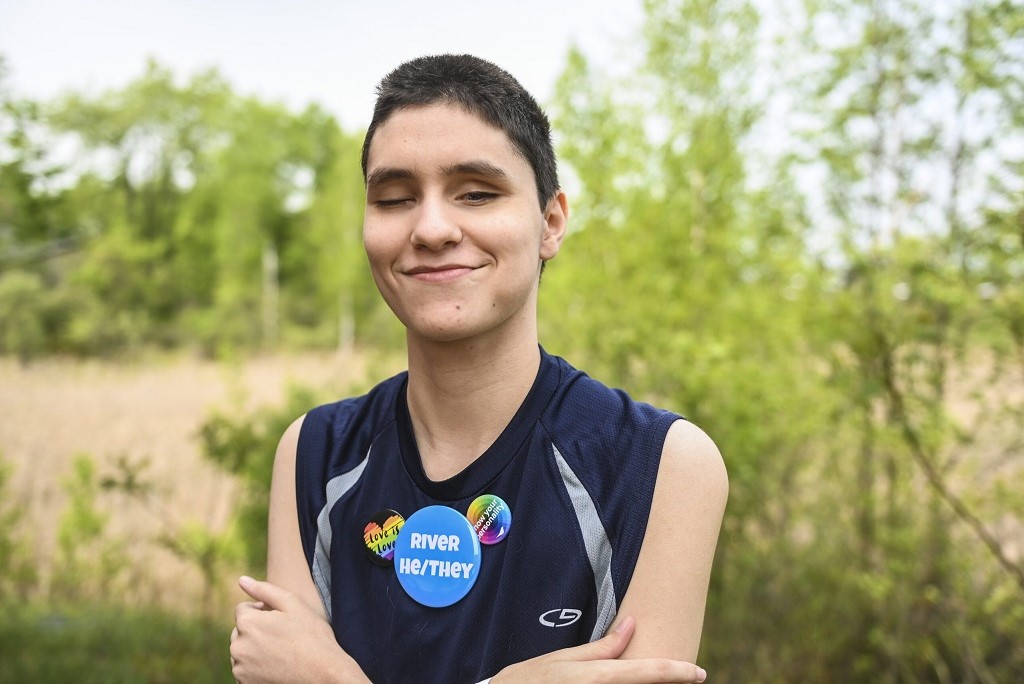
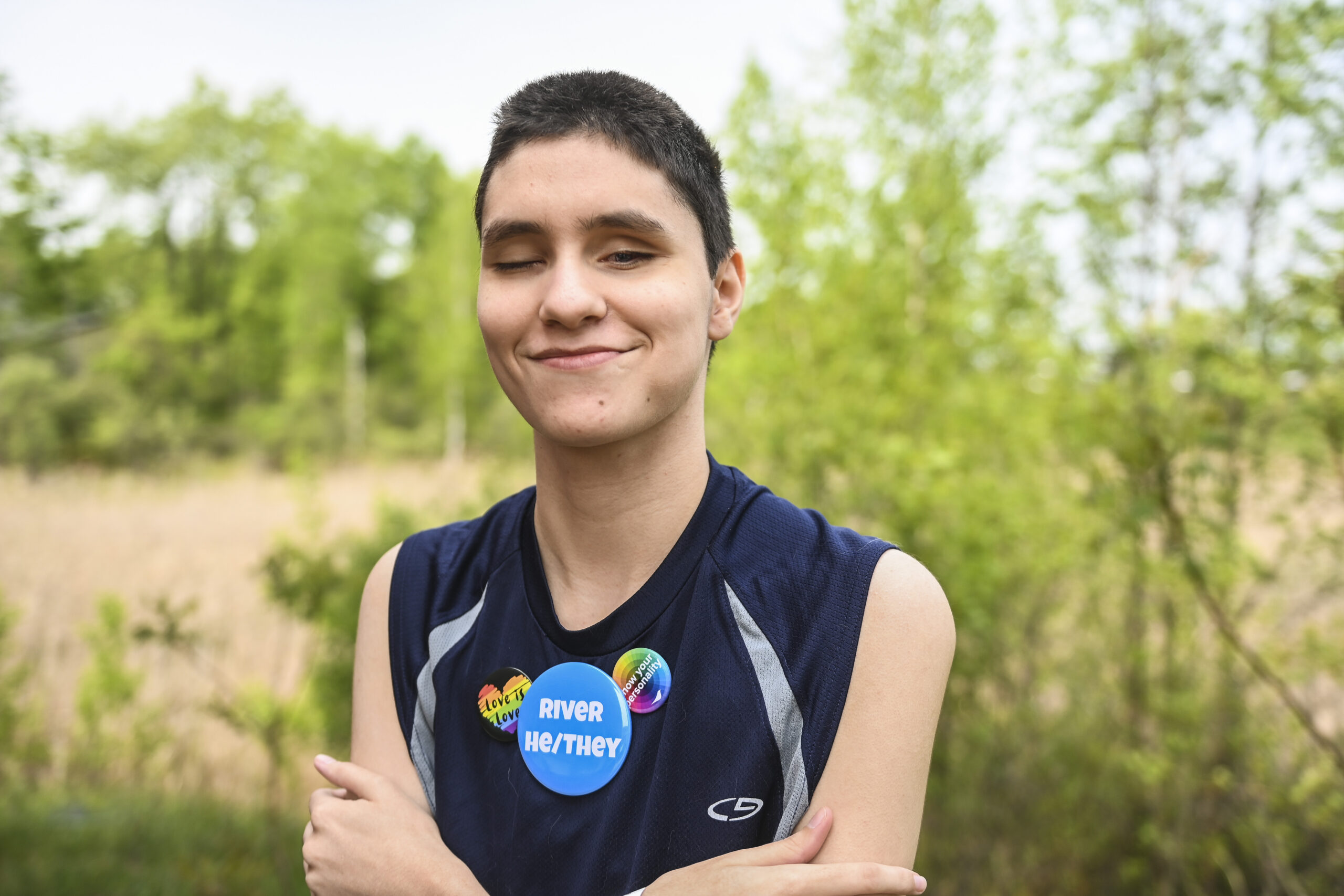
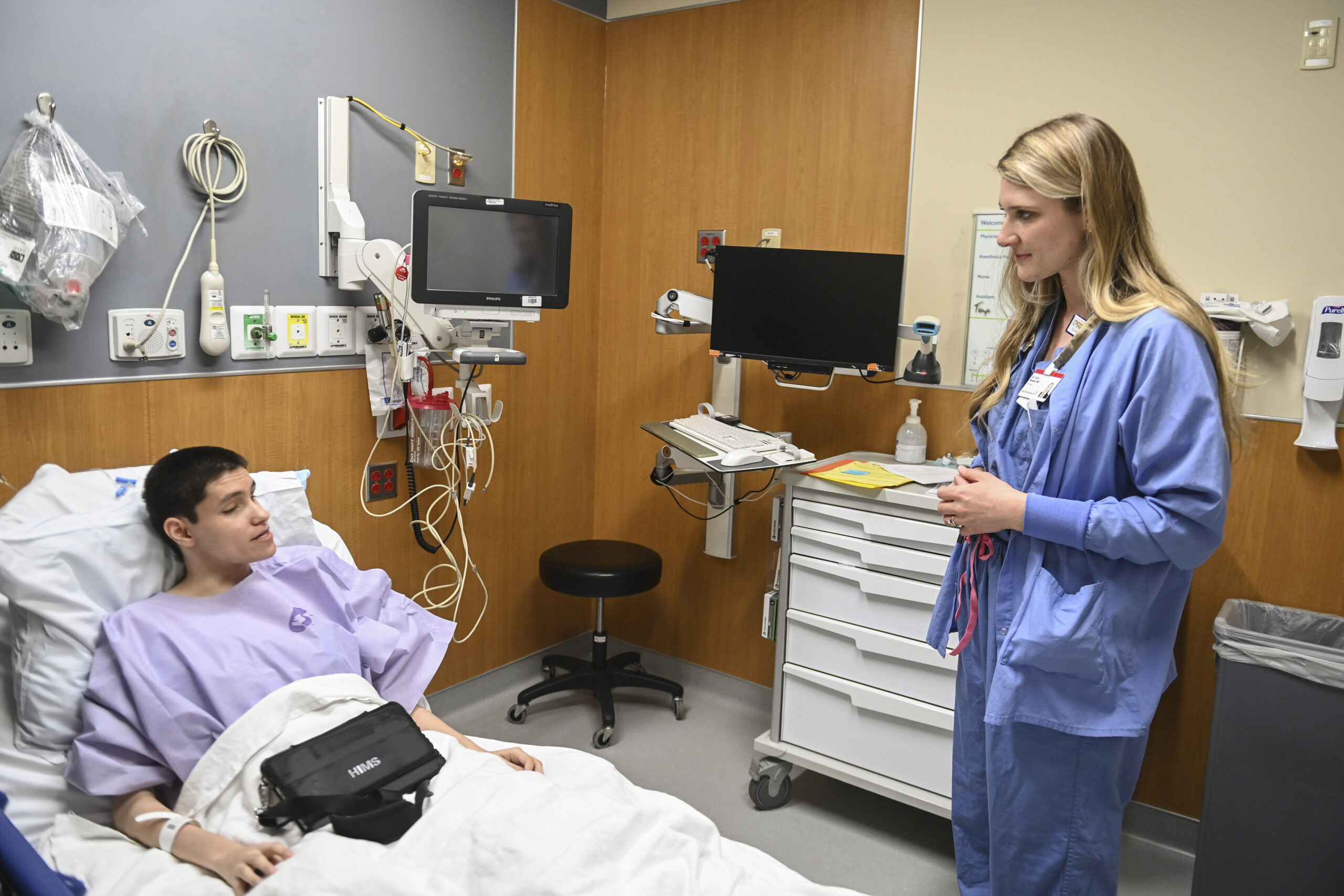
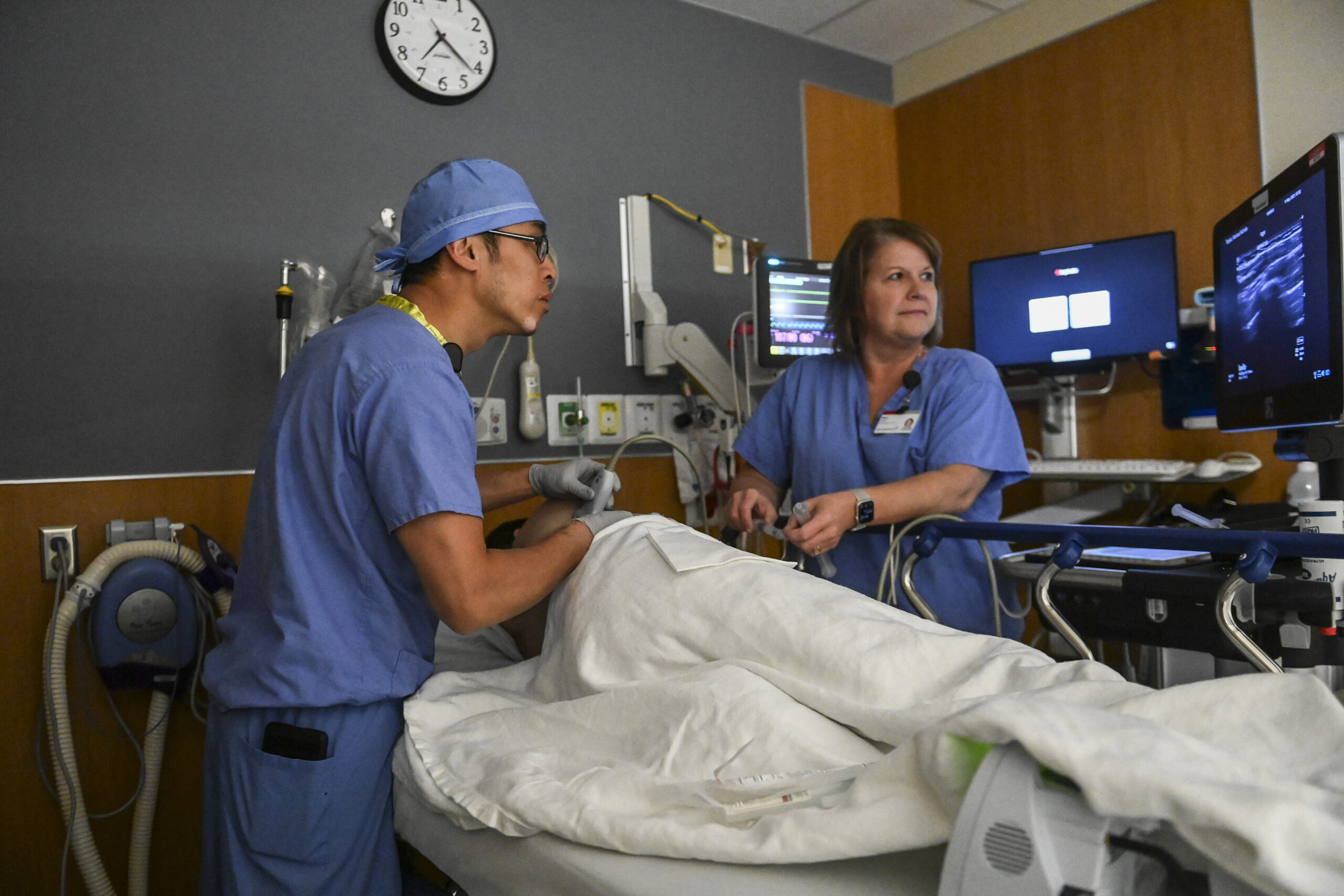
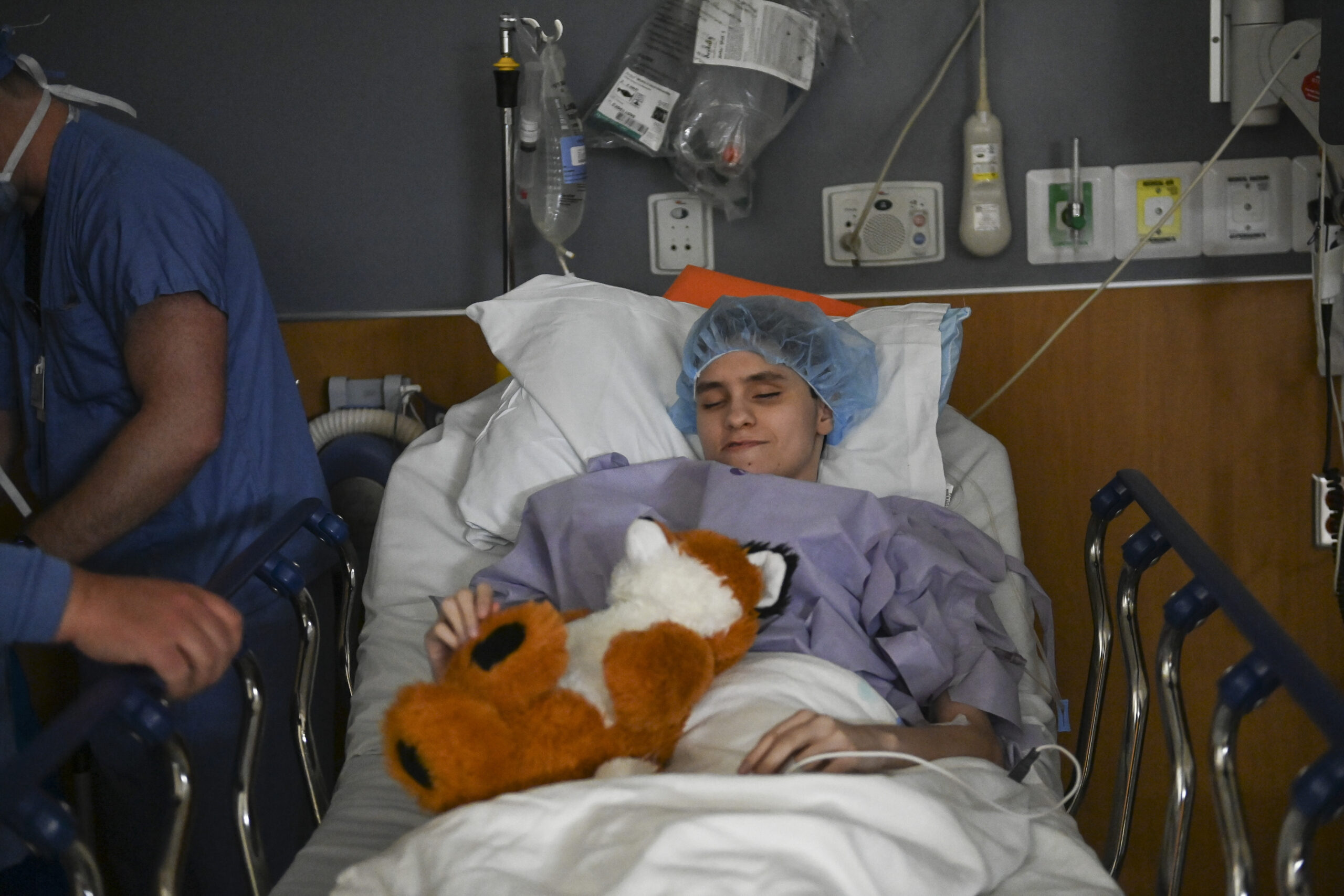
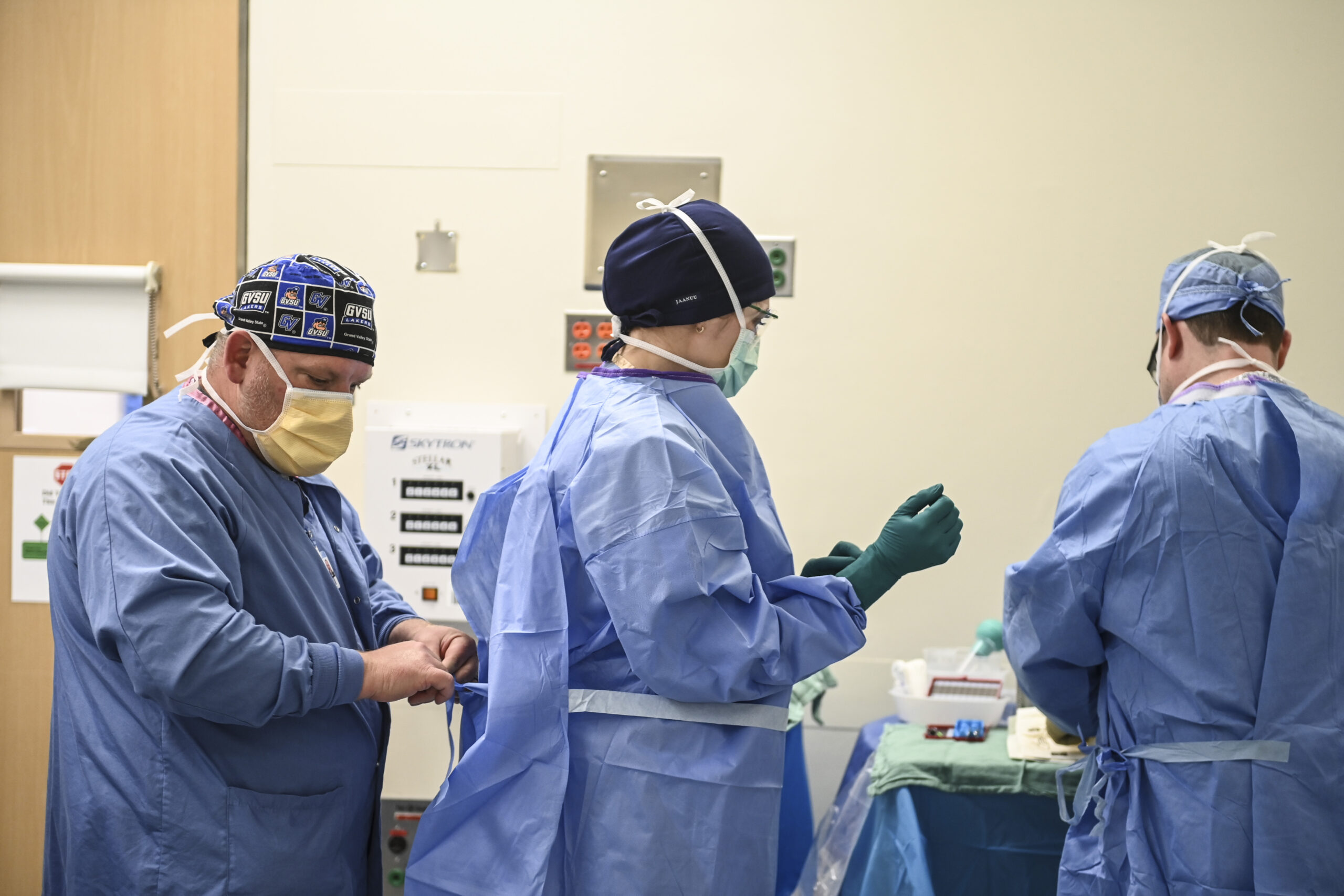
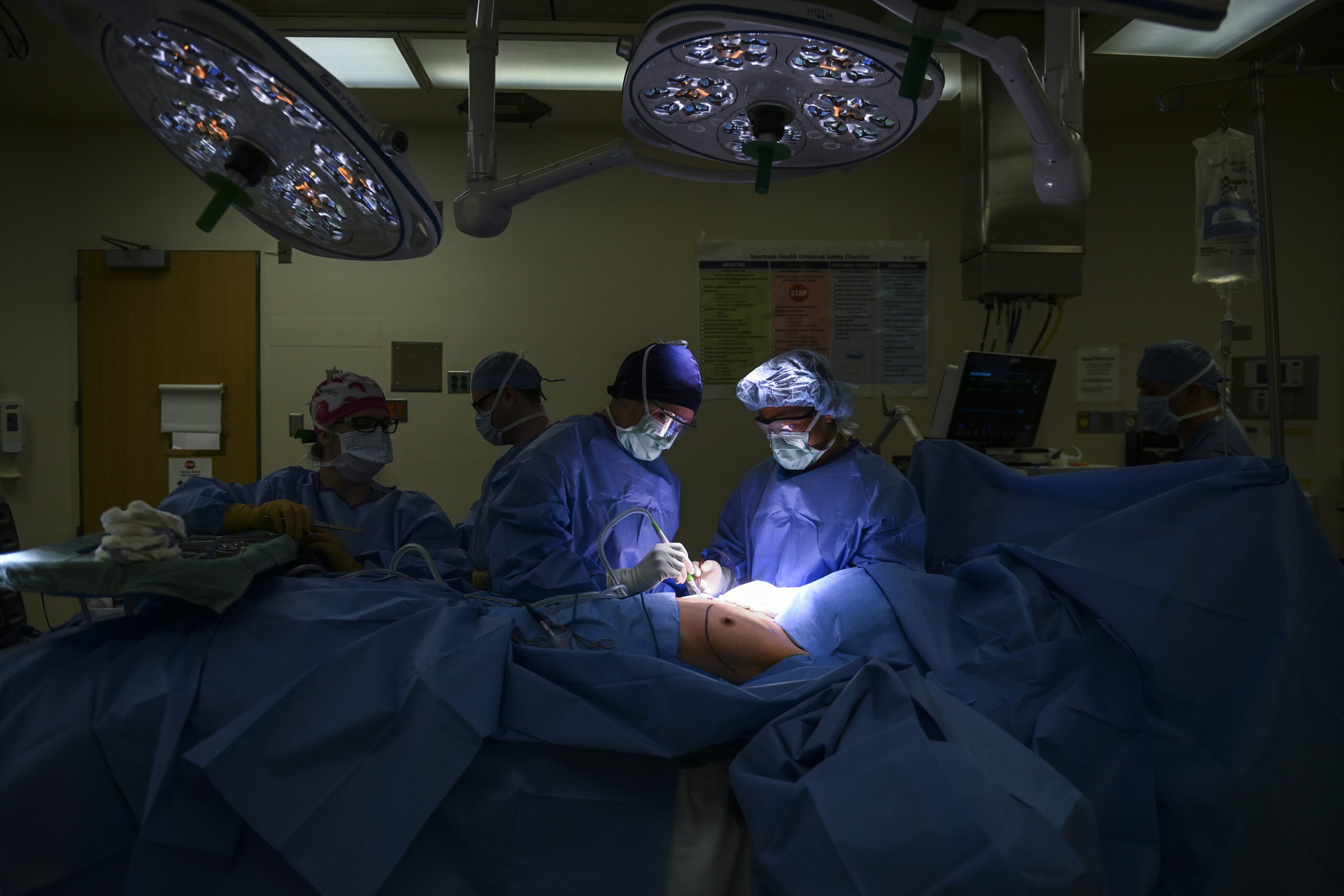
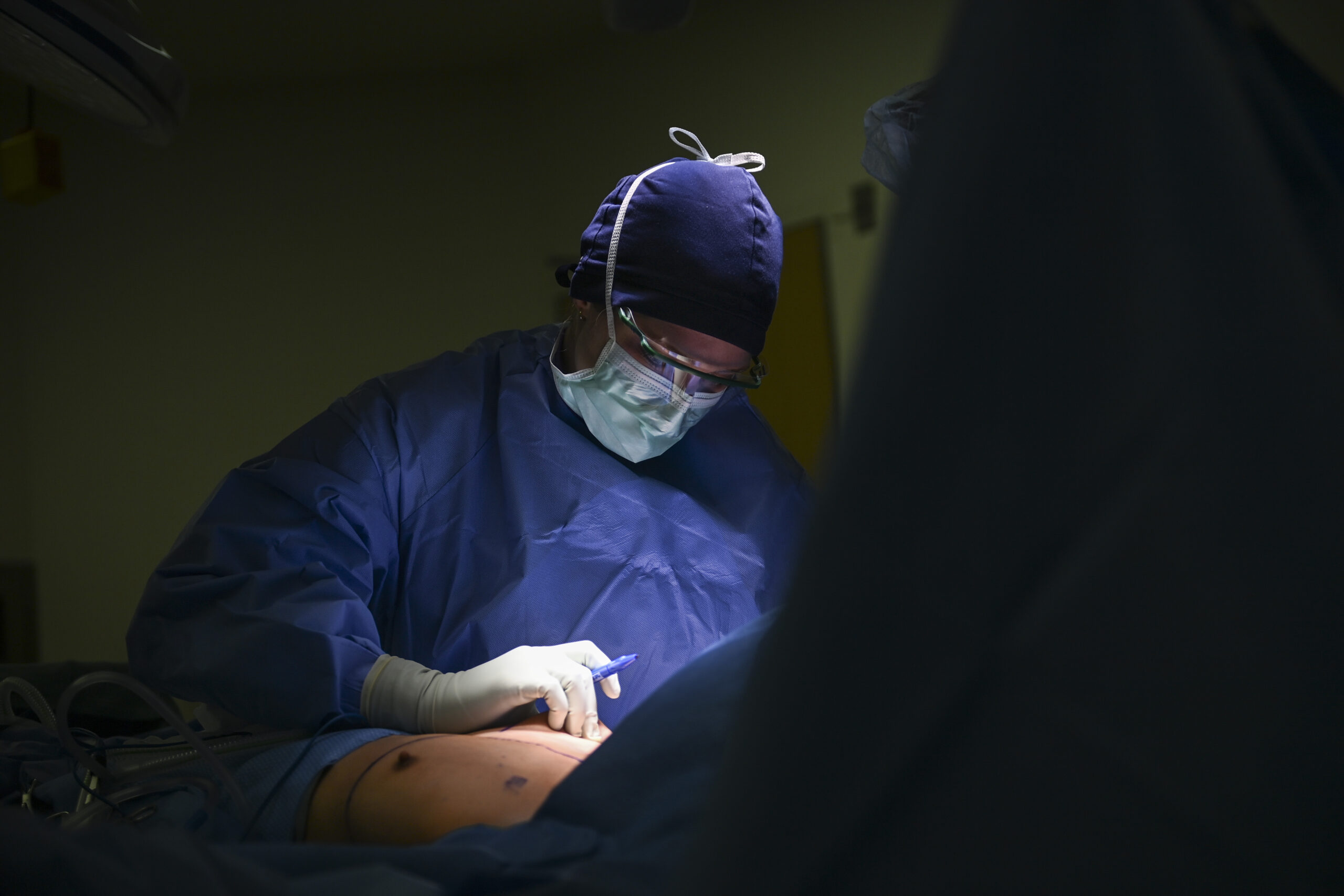
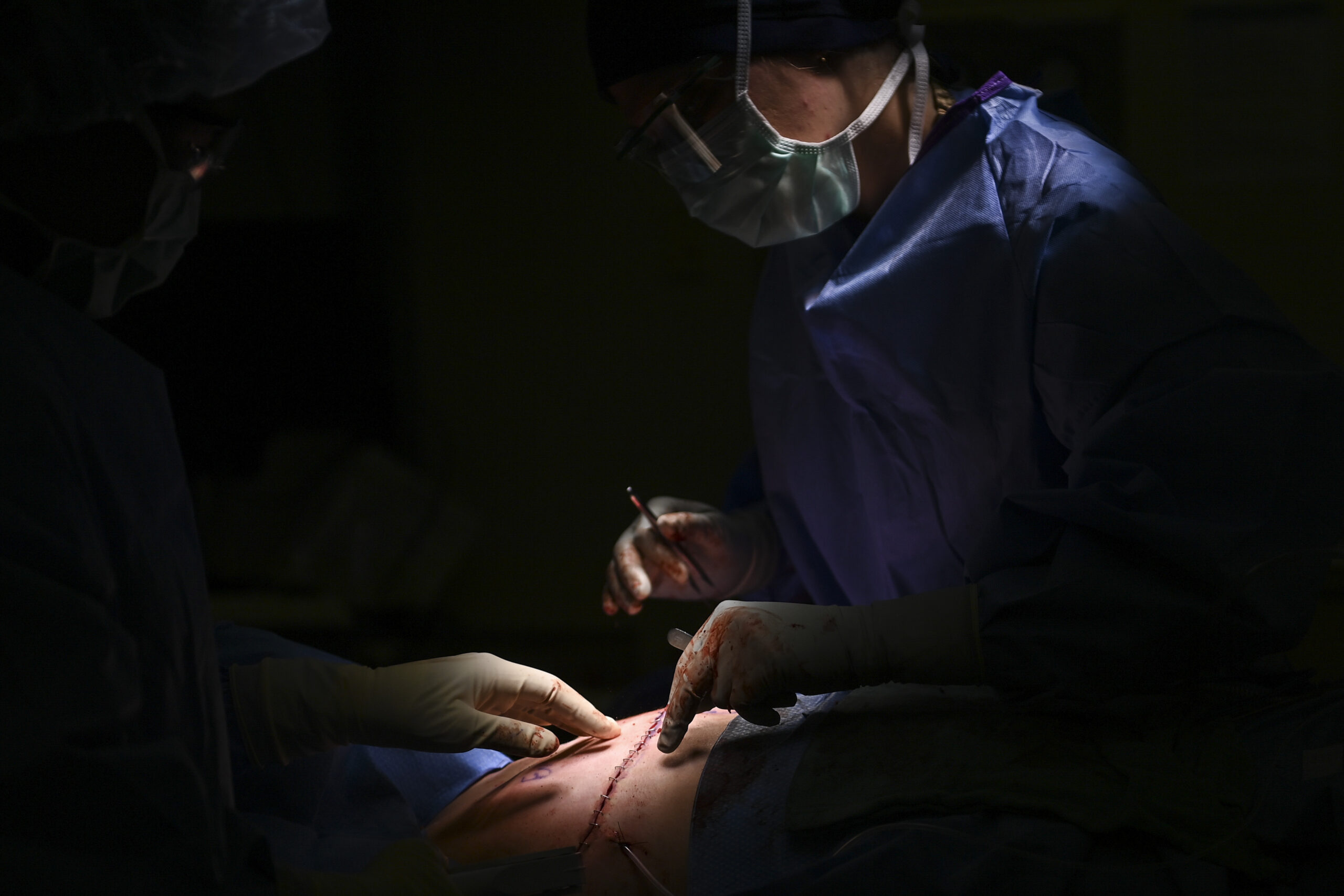
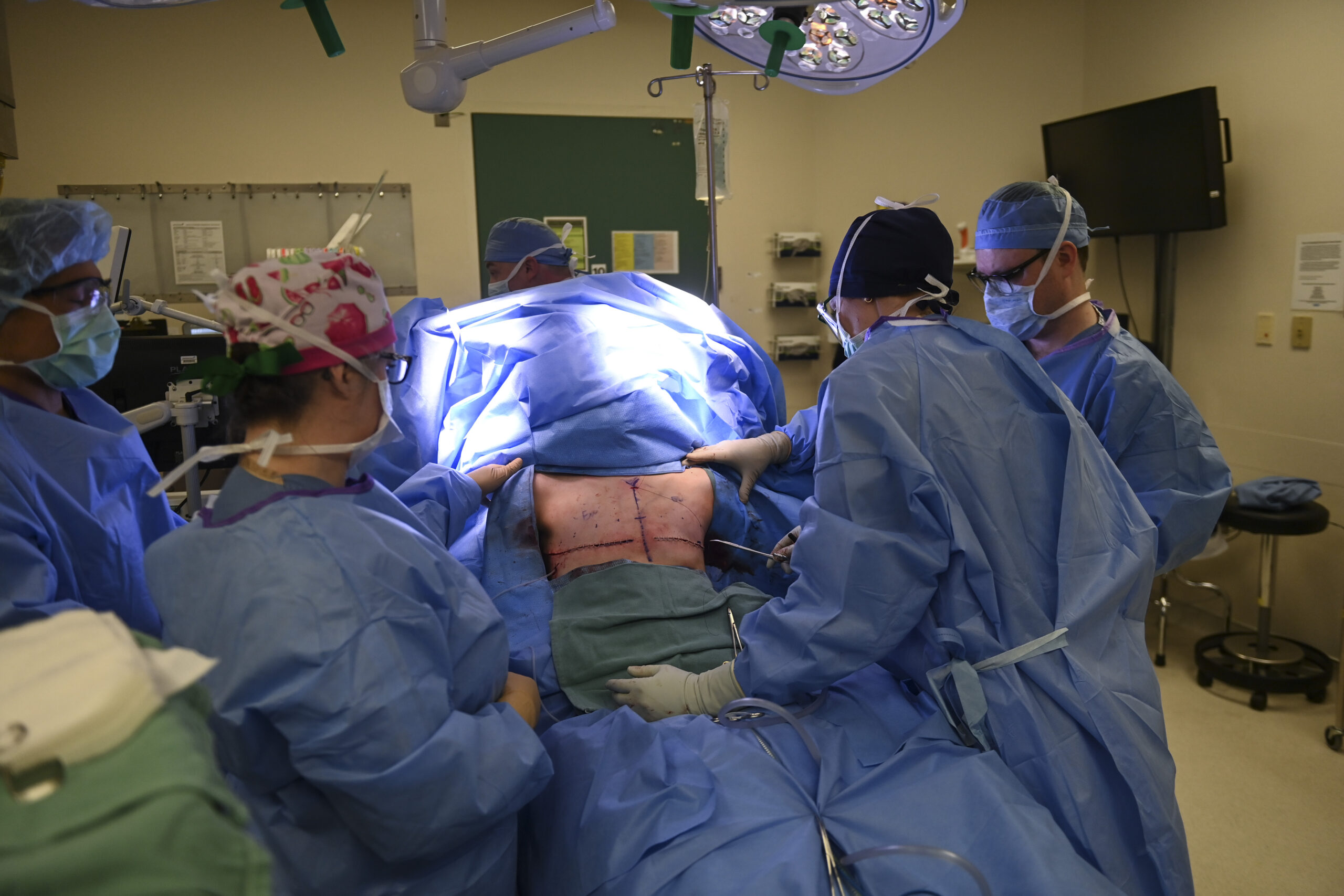
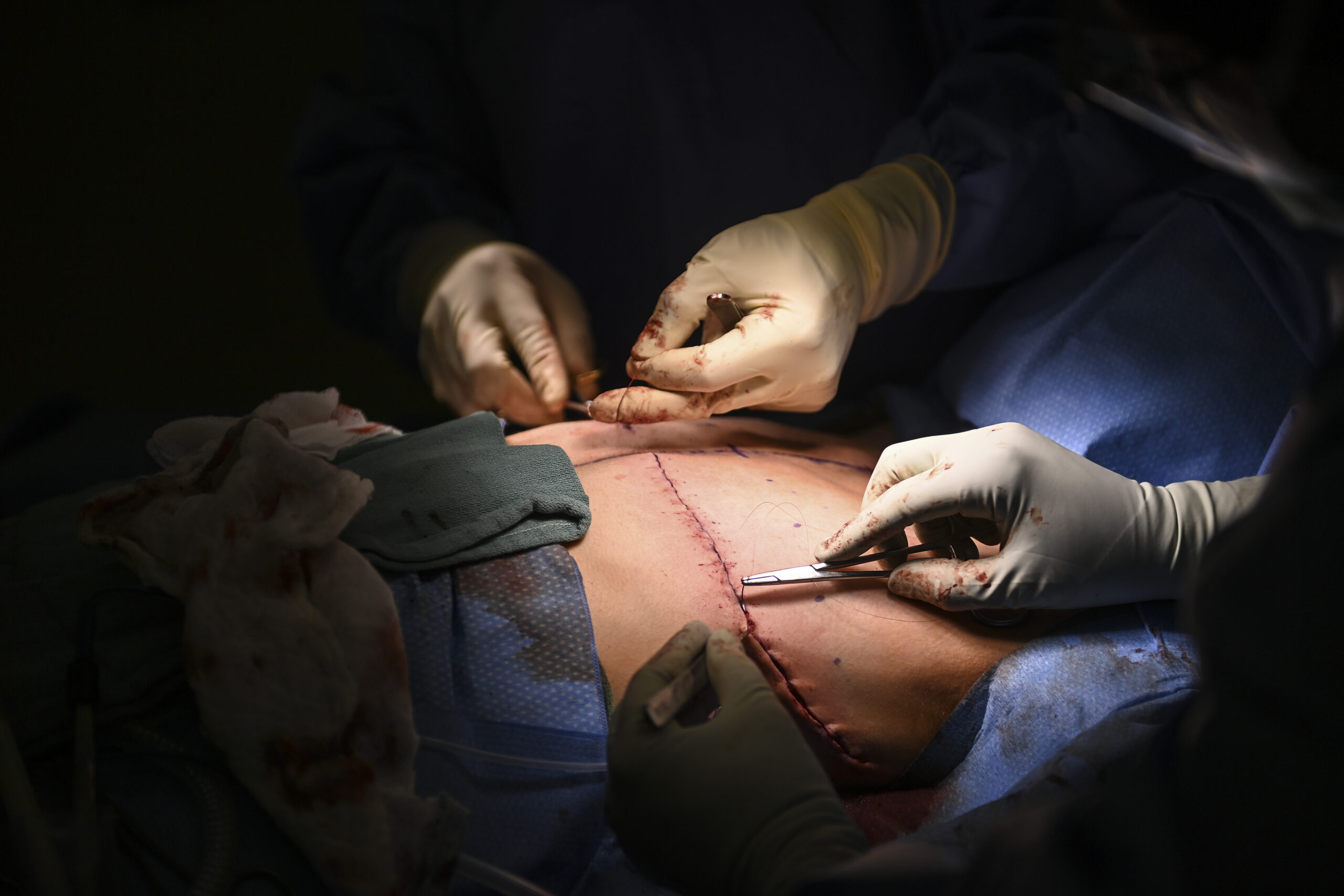
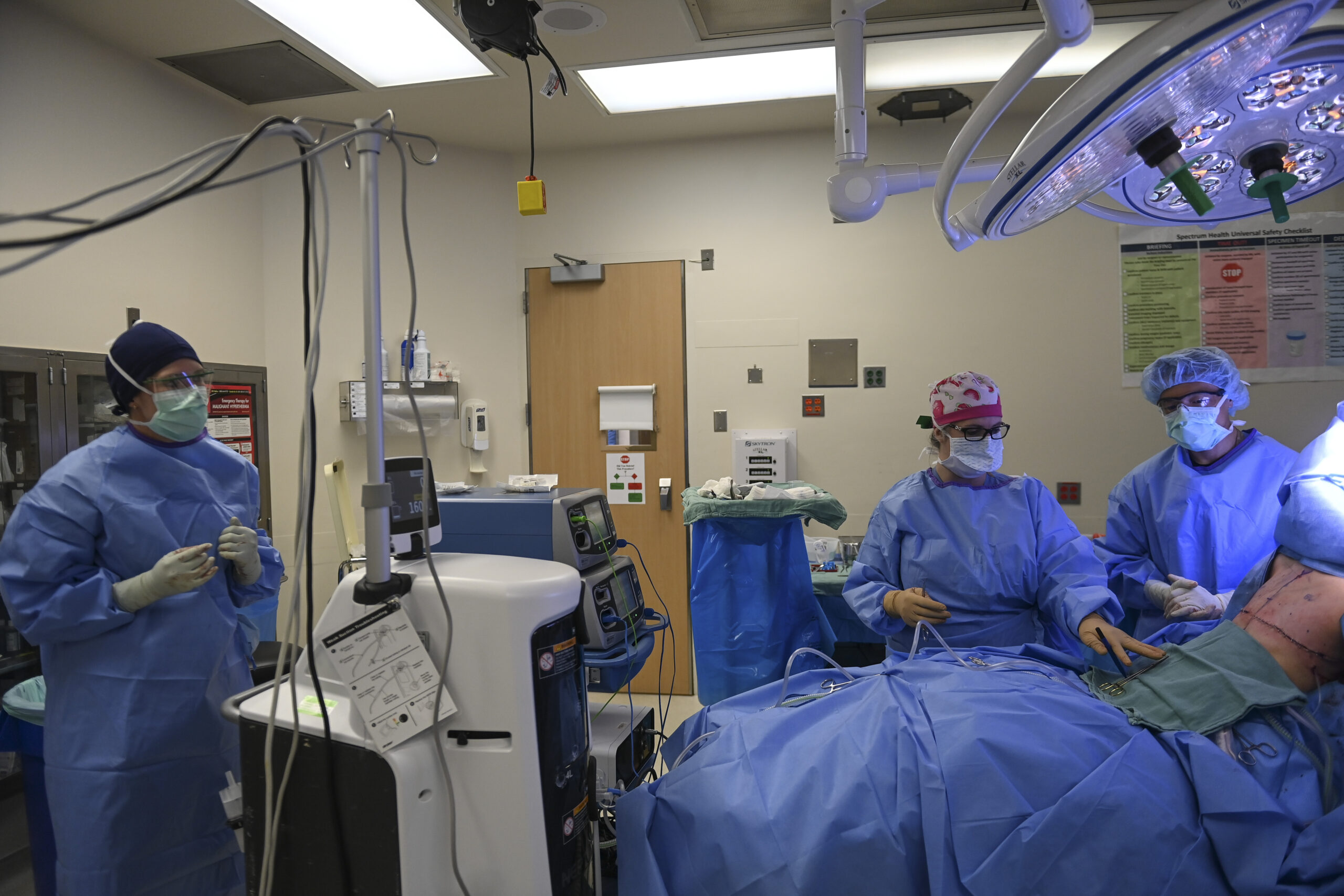
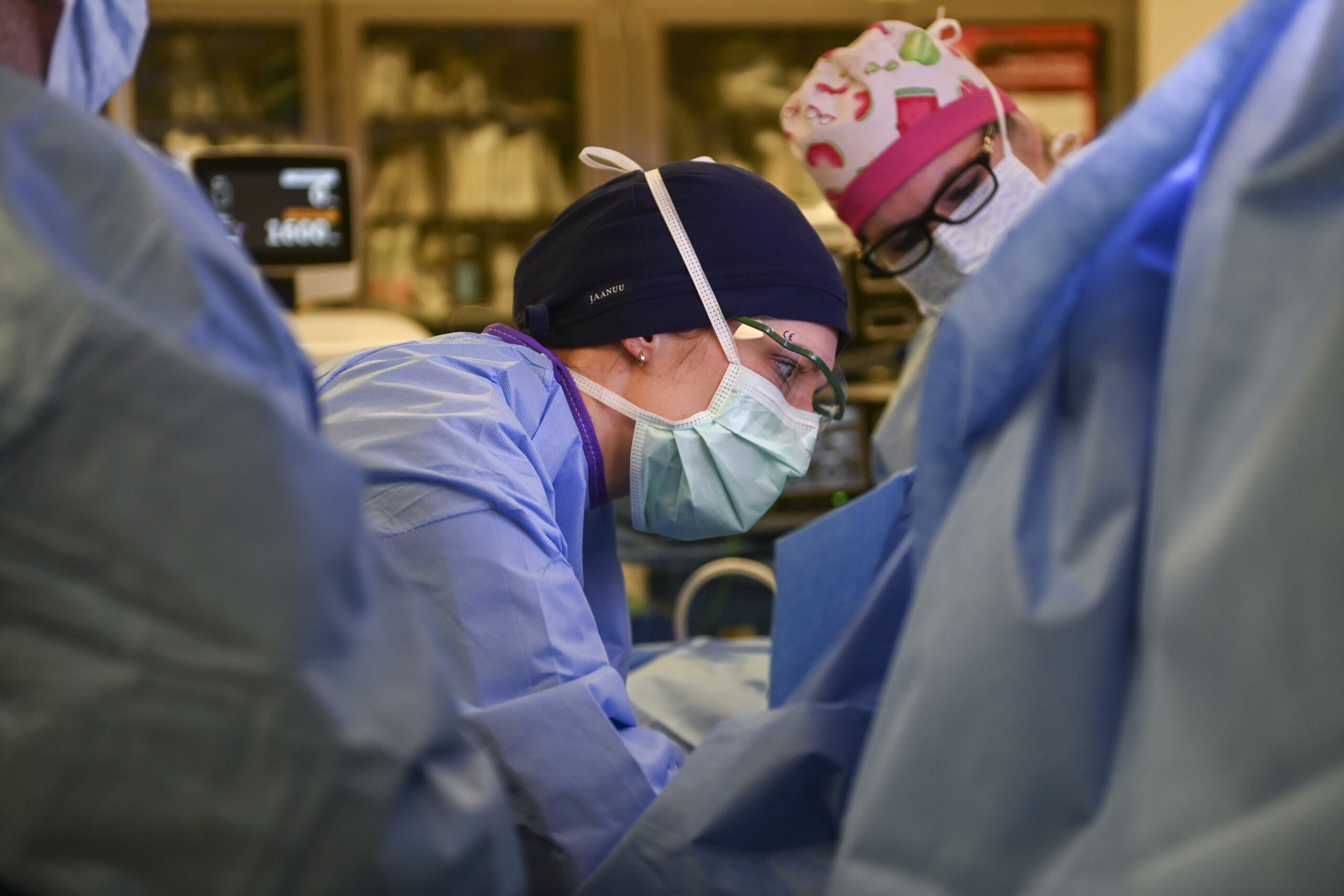
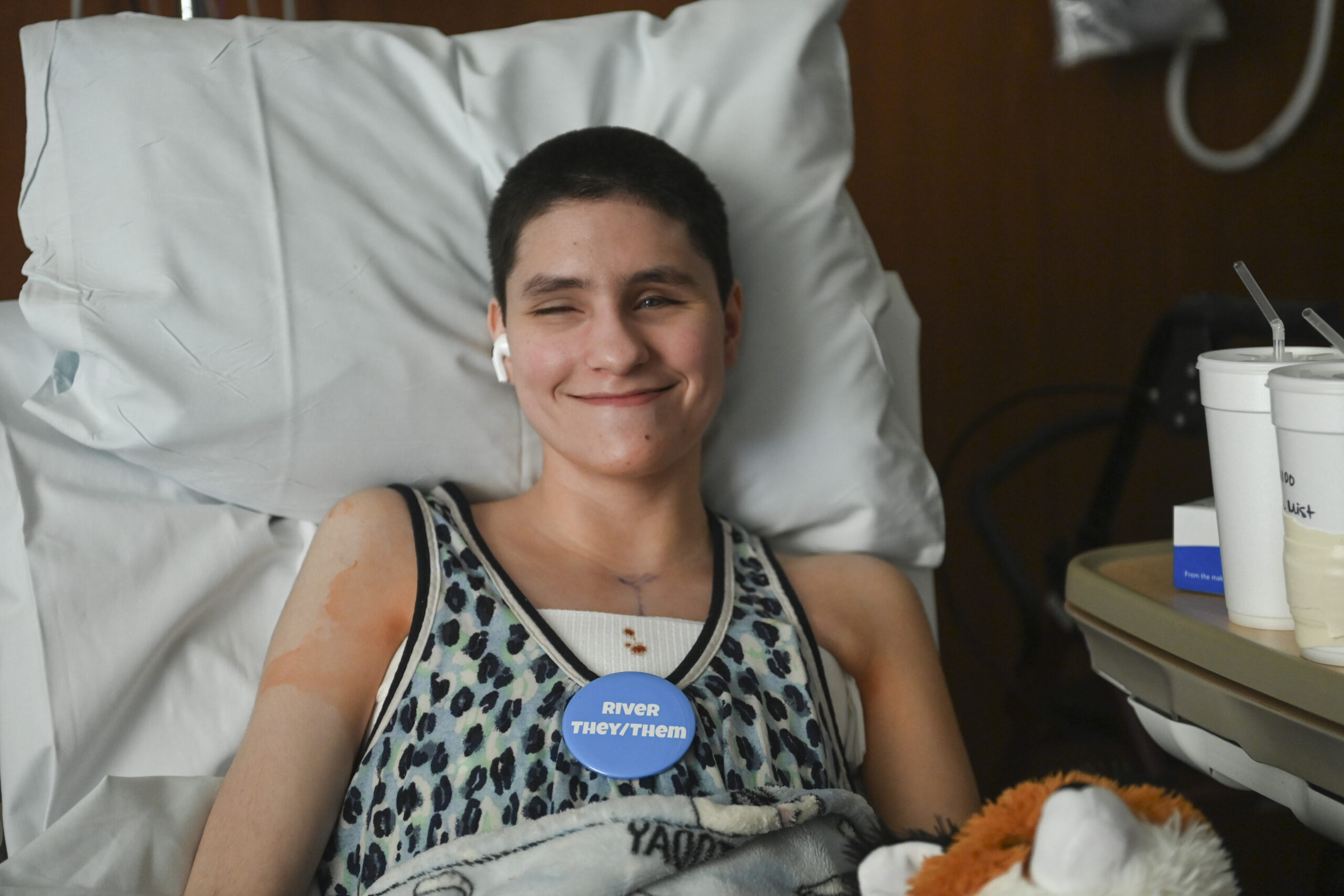
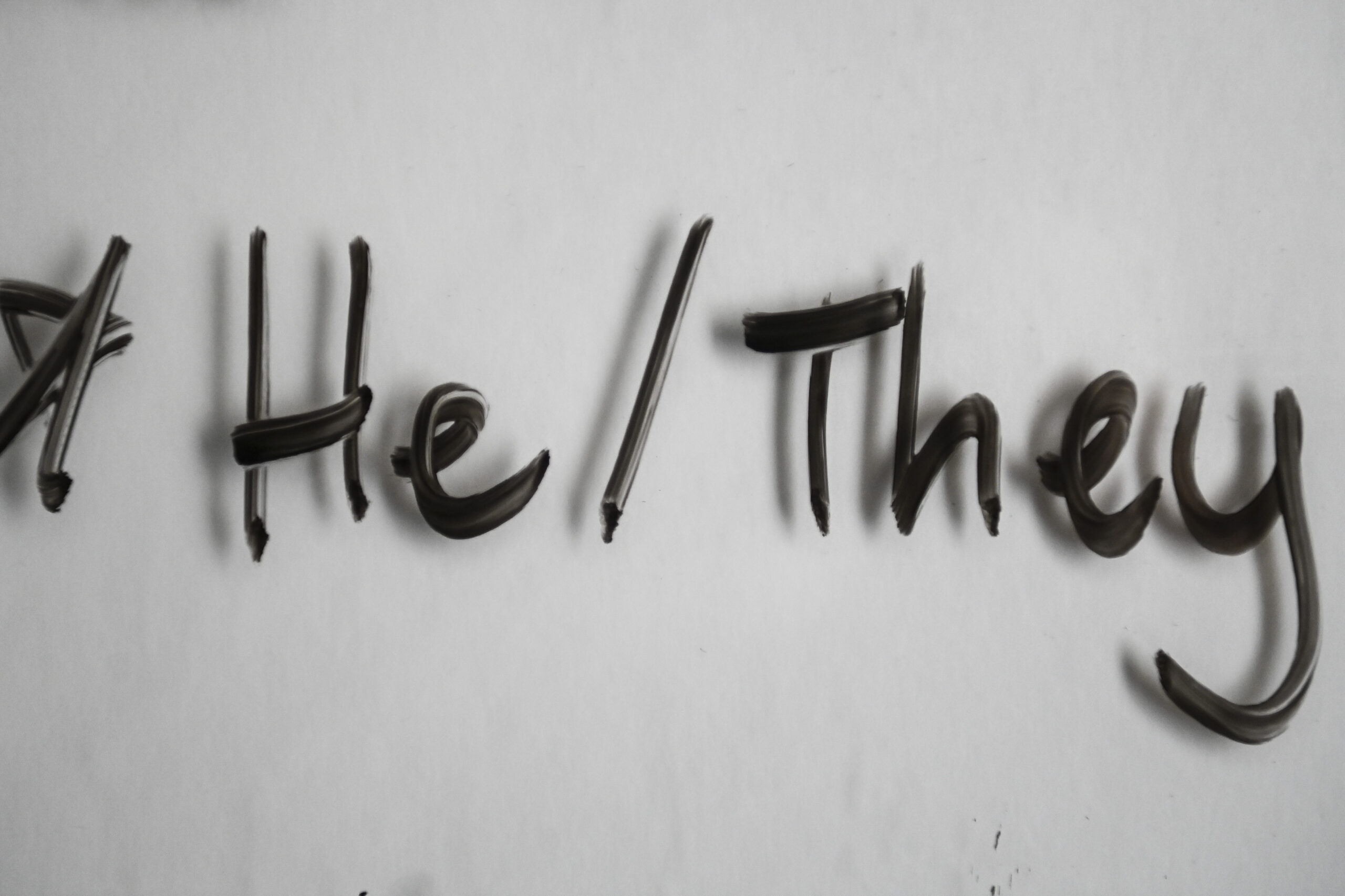
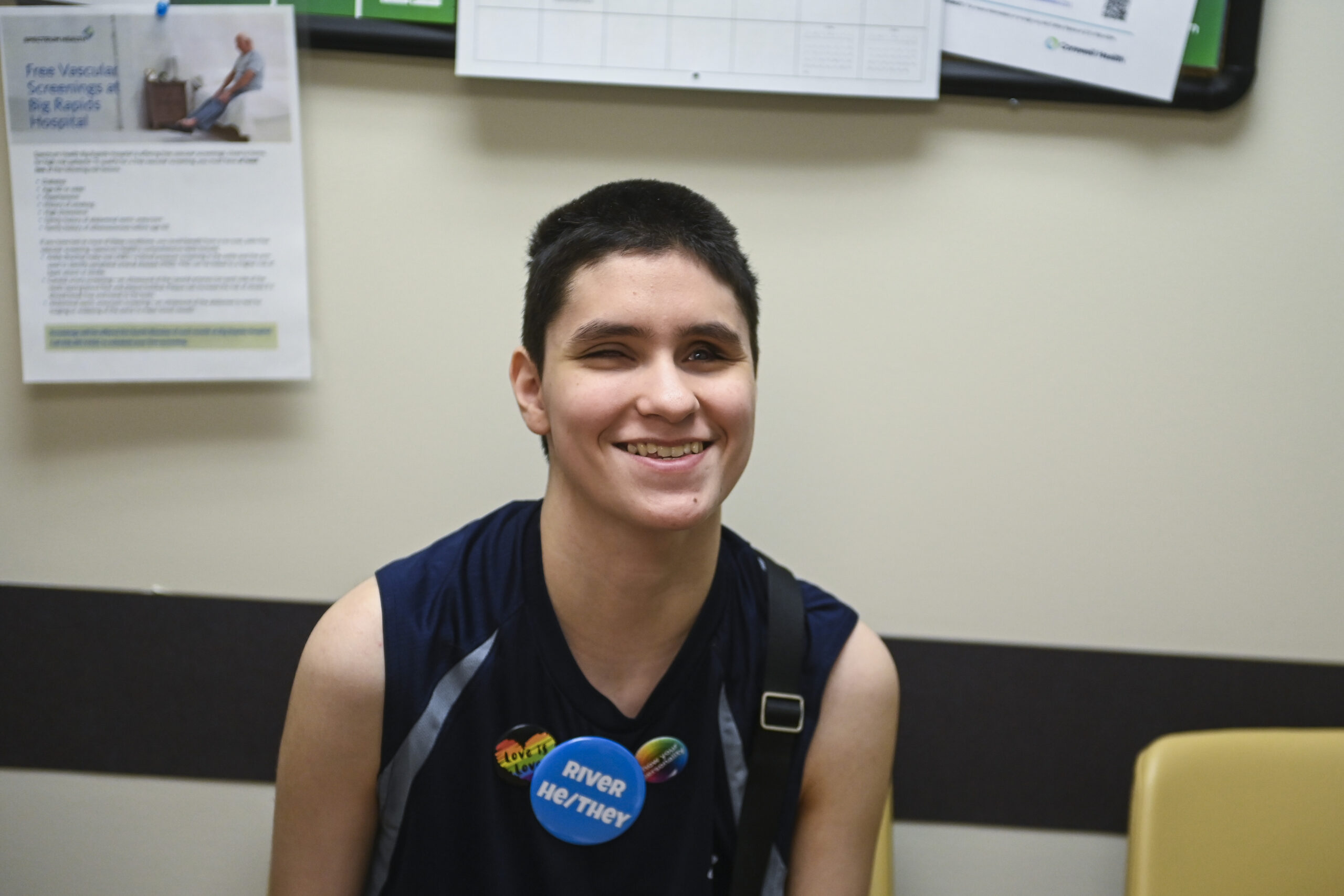
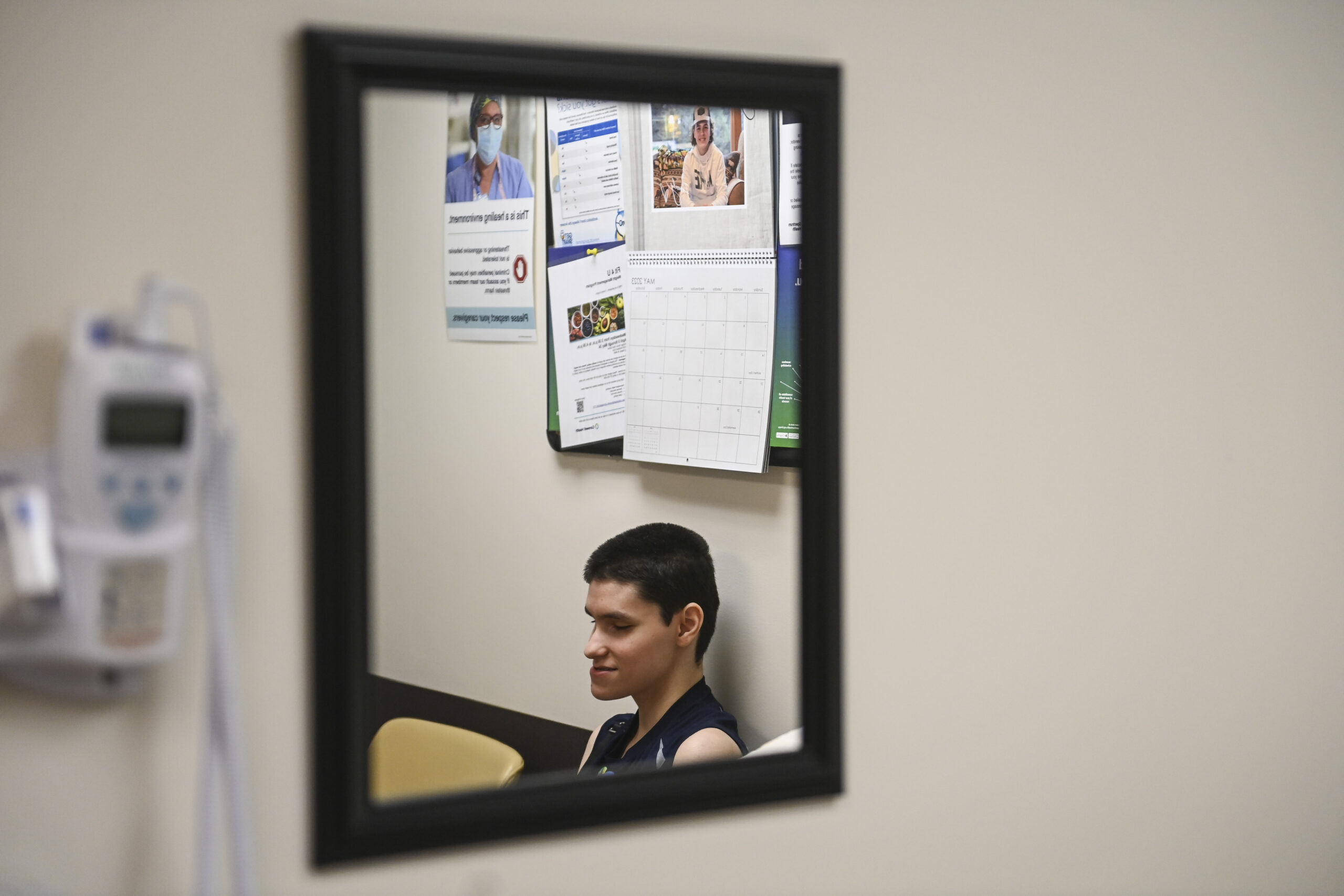
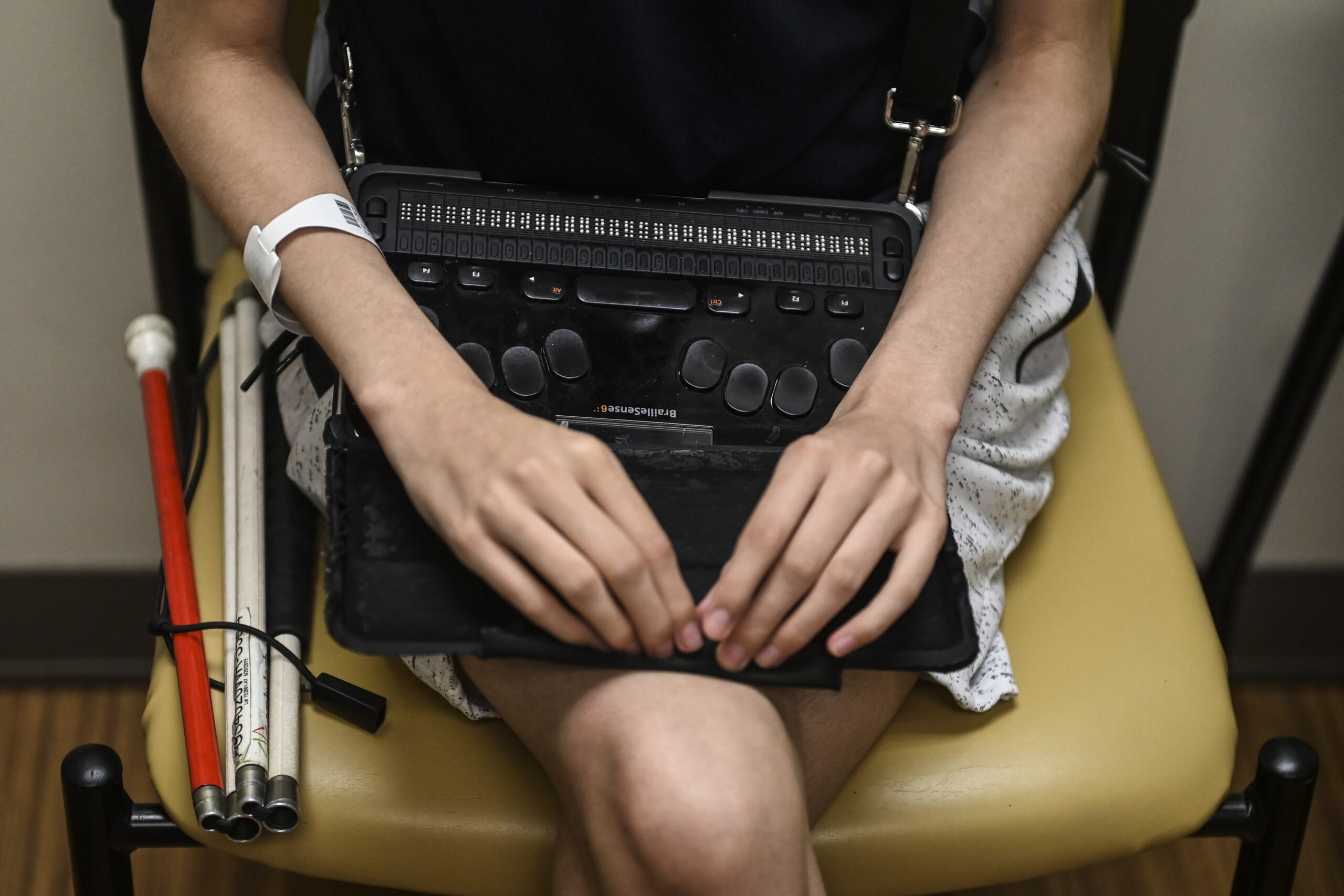
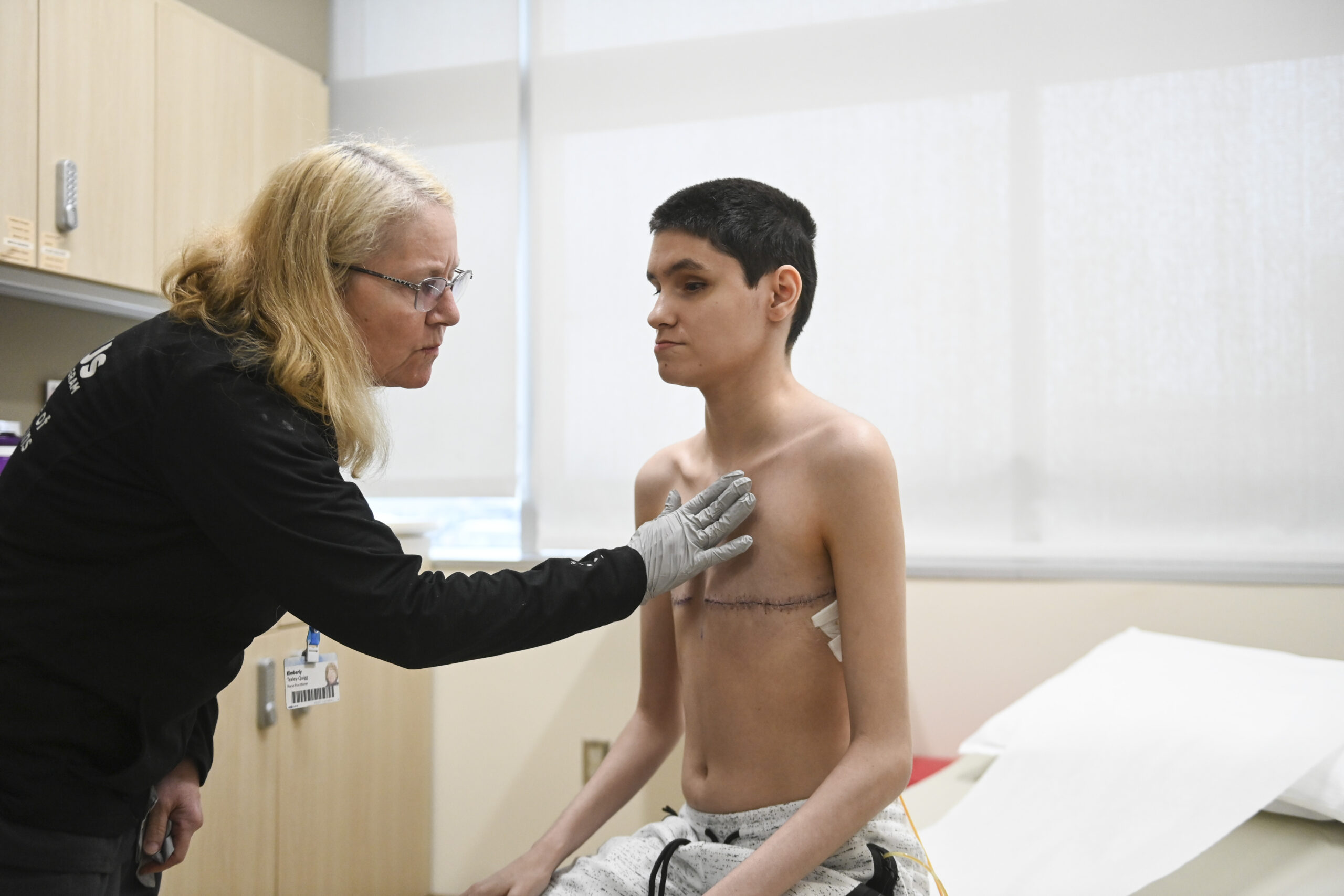
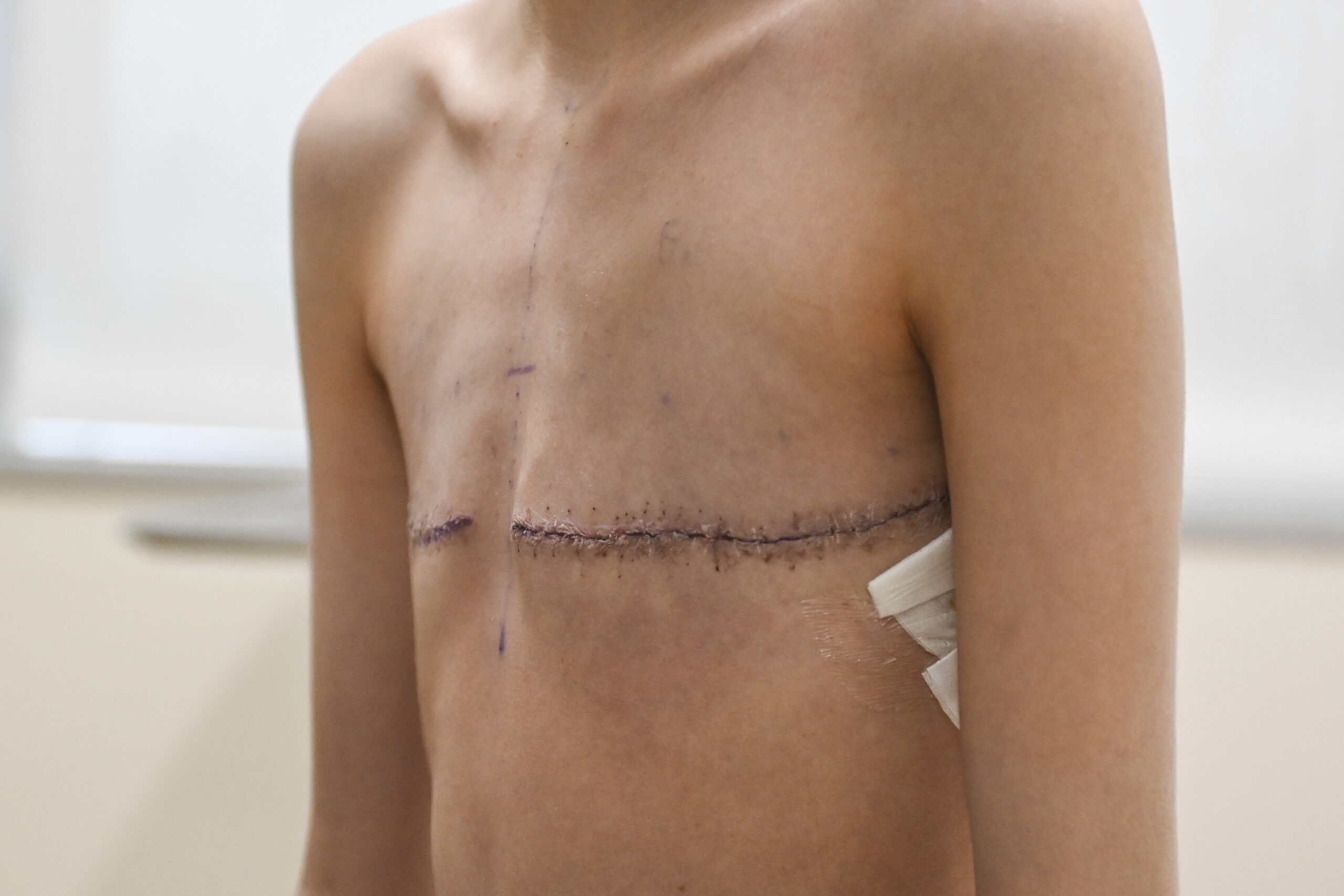
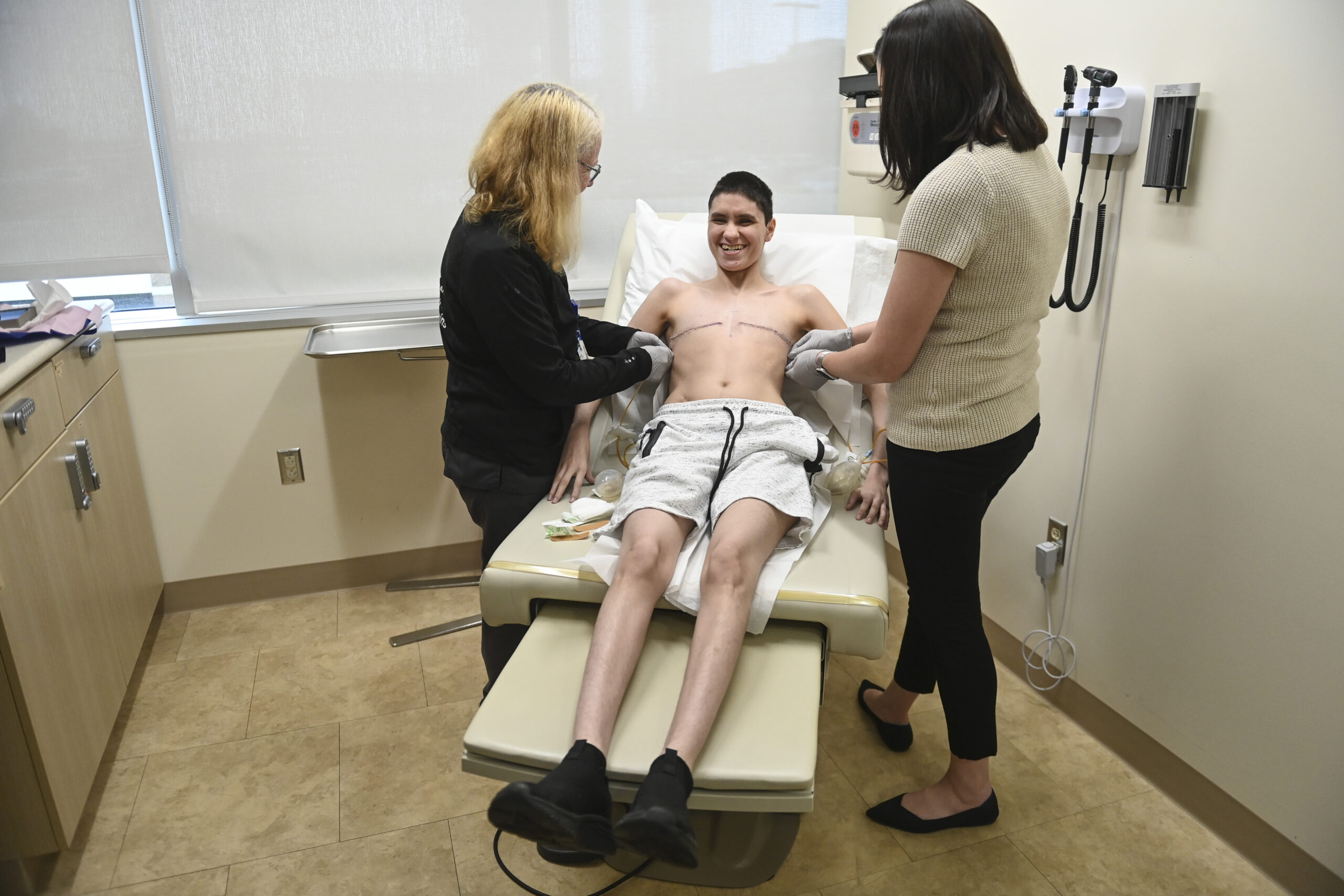
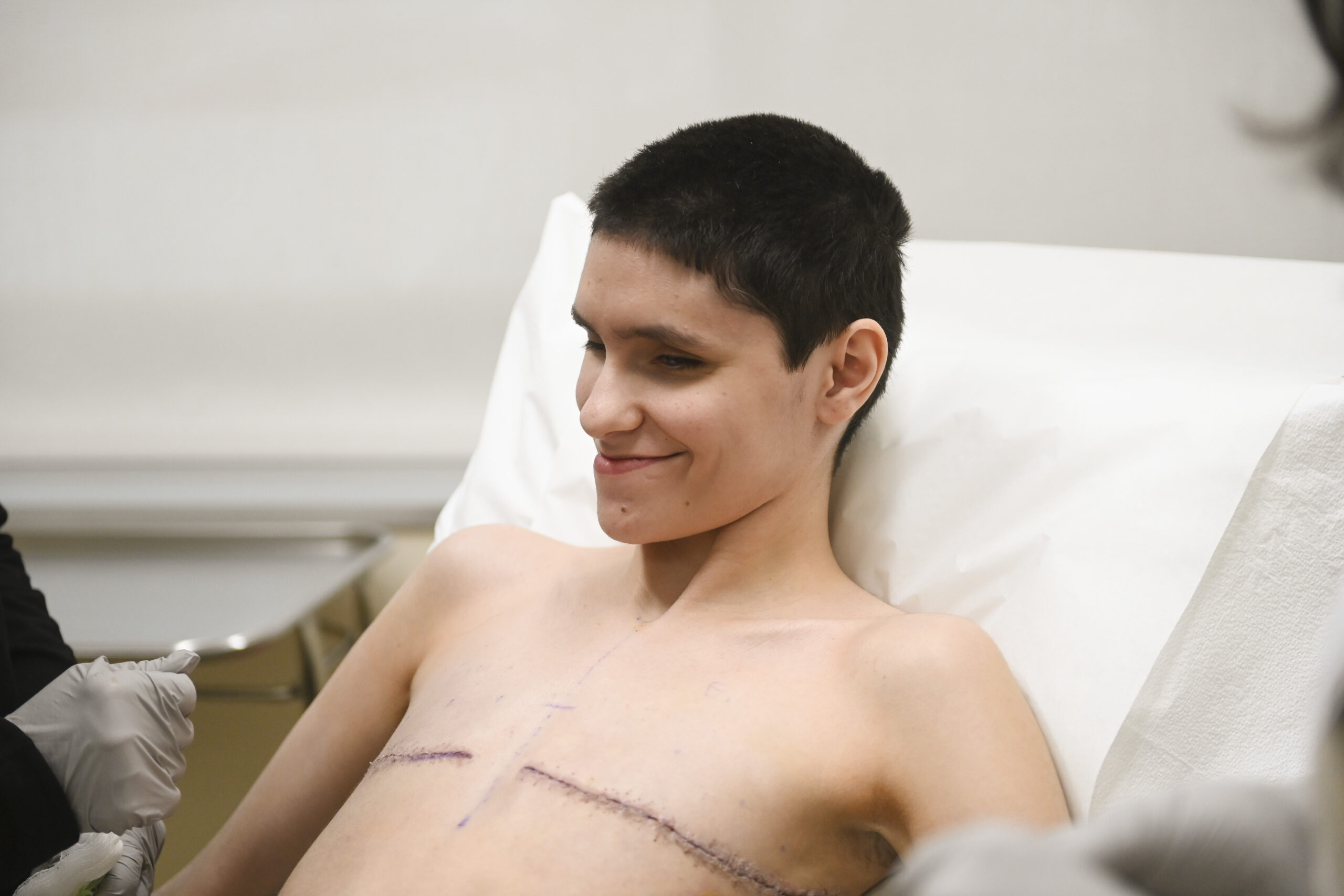
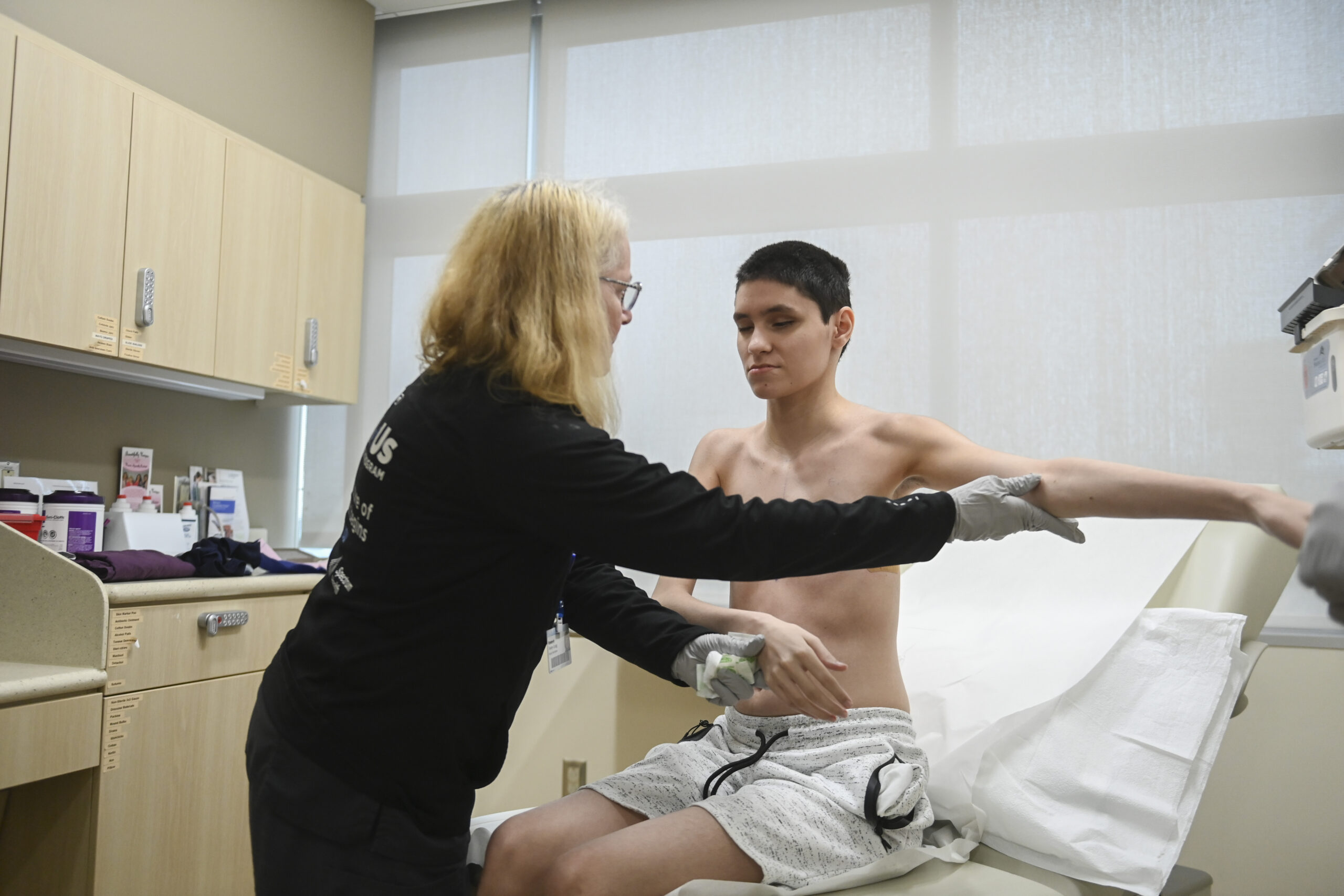
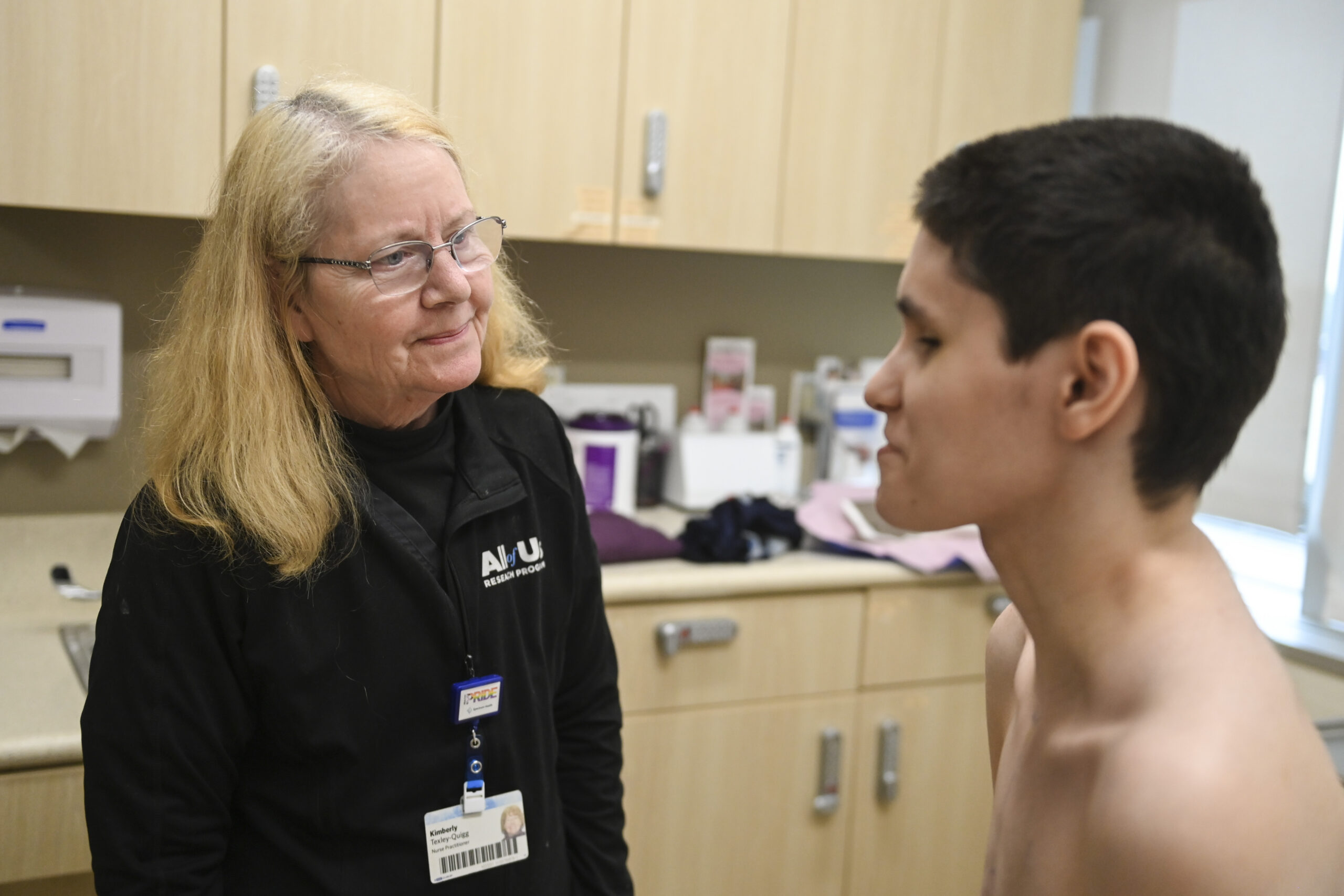
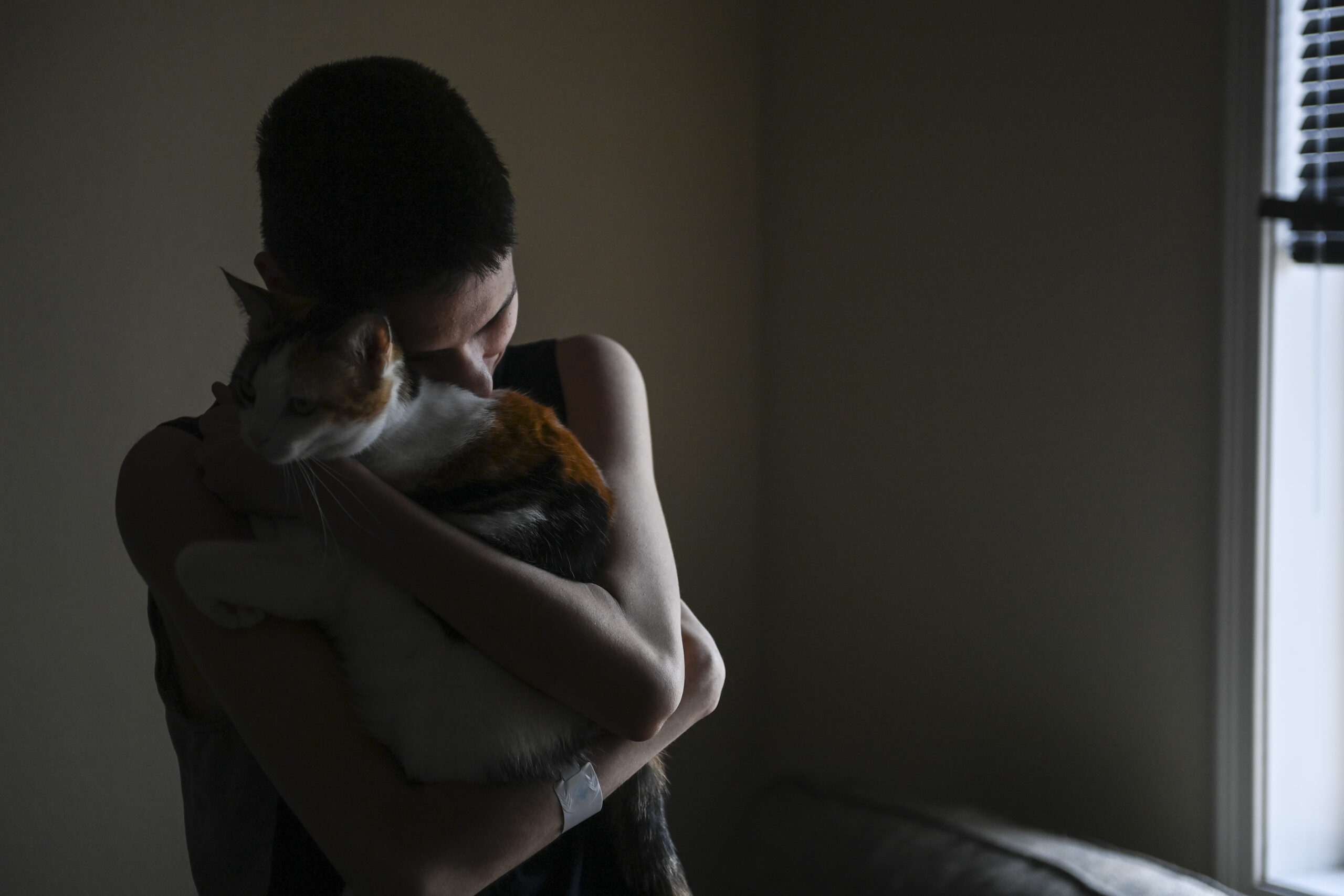
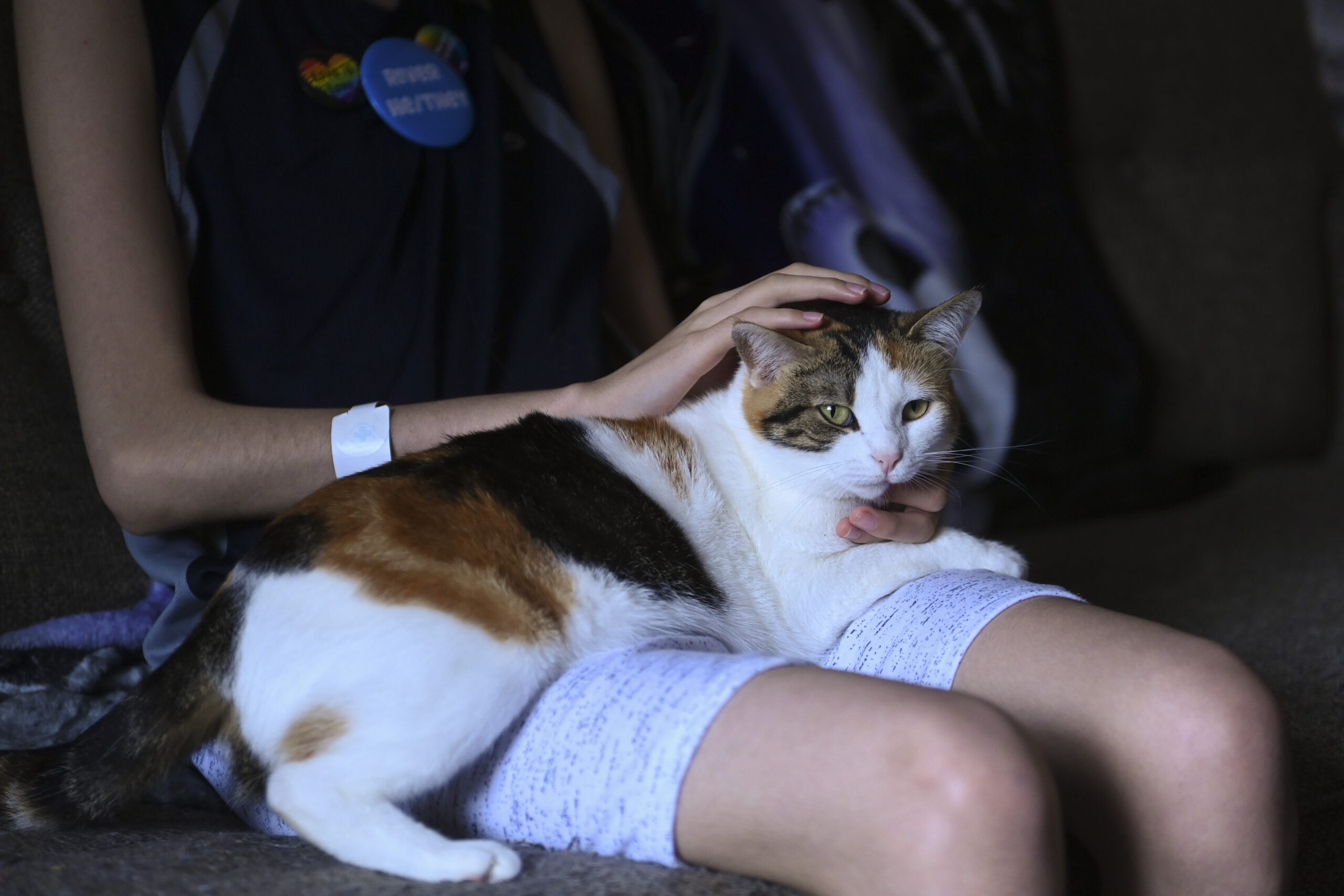
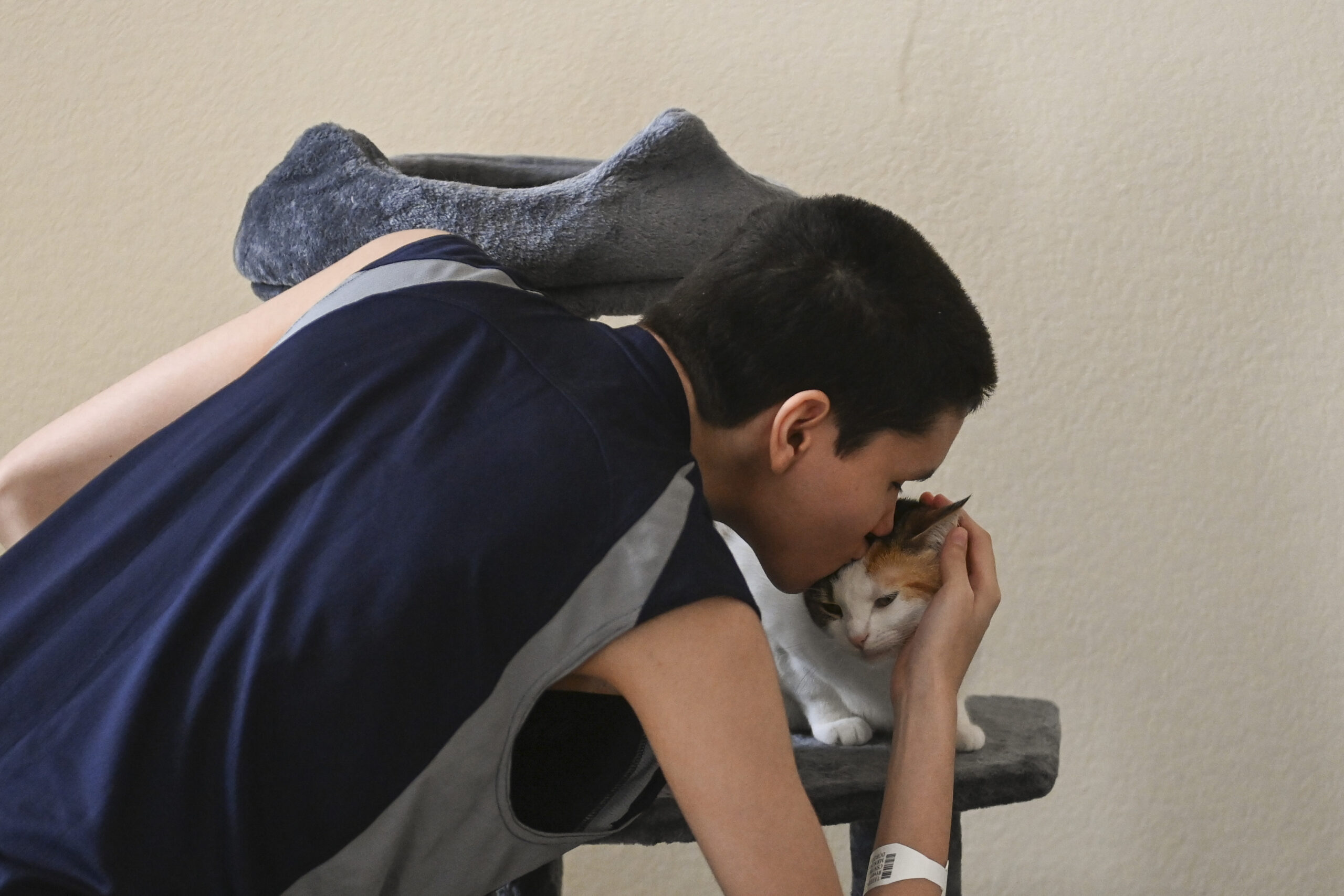
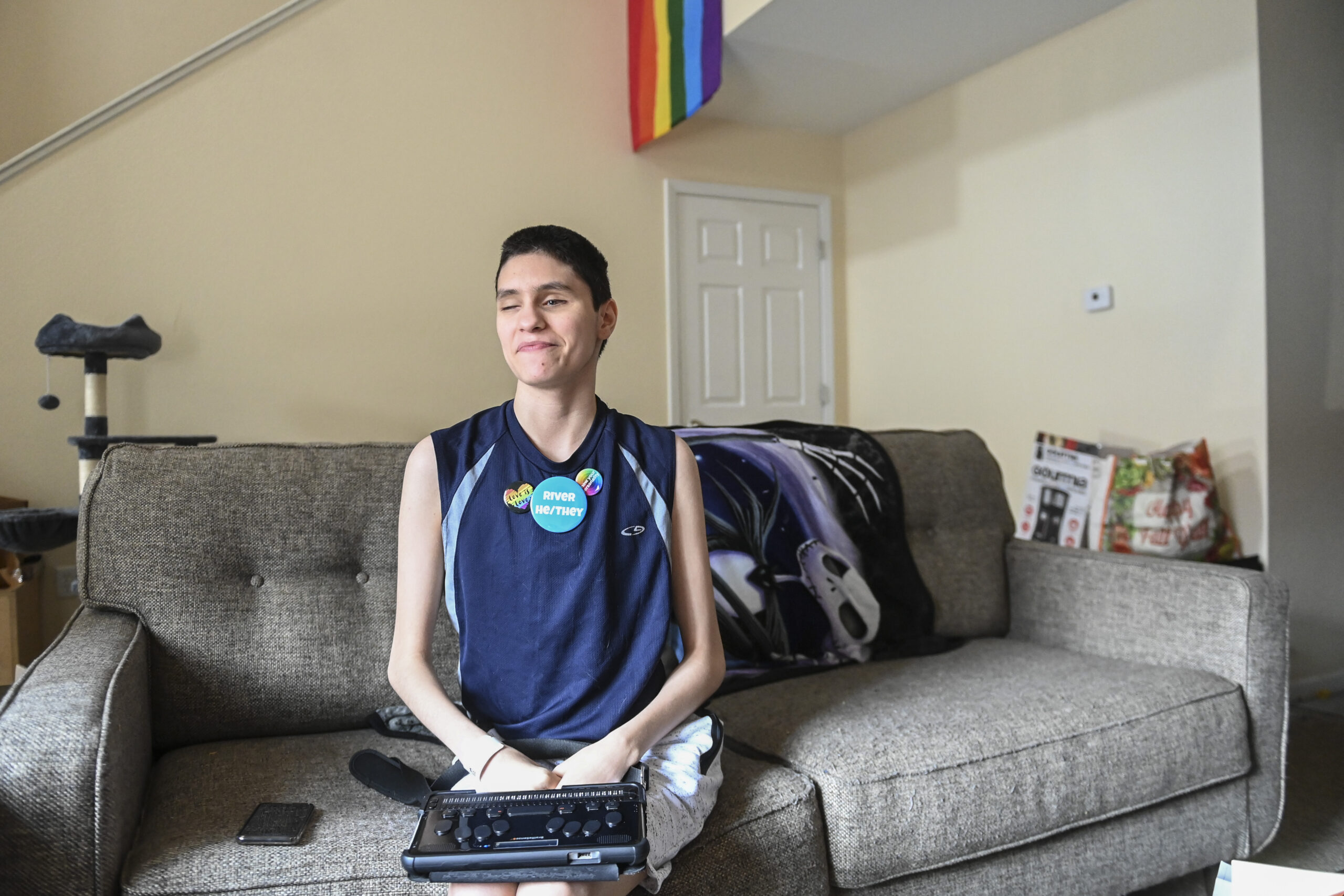
More Stories
Thoughts as of late: on evolving, growing & that tiny voice inside
County Health Officials Report 17% Increase in Tuberculosis Cases
10 Most Nutrient-Rich Foods To Include In Your Diet